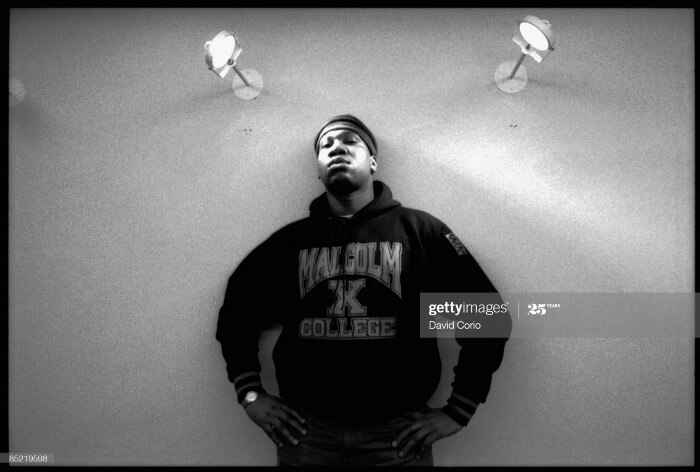Lyrical Luminary is an essay series analyzing the artistry of legendary and underappreciated MCs in the history of Hip Hop.
KRS-One (Knowledge Reigns Supreme Over Nearly Everyone) was one of the biggest names on Hip Hop’s marquee during the culture’s golden age. His impeccable emceeing has made an impact on artists and fans from all over the world and across generations.
Born Lawrence ‘Kris’ Parker, but widely known across the globe as KRS-One, the man goes by many worthy titles; ‘The Teacha’, ‘The Blastmaster’, Student, Leader, Historian, Author, Thinker, Writer, Philosopher, Lecturer, Orator, Scientist, Influencer, Ambassador — and of course, ‘The MC’.
I’m sure I’ve missed a few; there are many befitting ways to describe an MC with the earned stature of KRS-One.
But here’s a term that I would humbly like to bestow upon the Bronx-born MC: Lyrical Luminary.
The Moment
The songs released at the beginning of KRS-One’s career that put the rap game on notice: “South Bronx” (1987) and “The Bridge Is Over” (1987).
New York is the ONLY place on the planet that could have produced what we call Hip Hop culture. The biggest city in the United States is arguably the most famous multicultural melting pot in the world. Its diversity of people within its five boroughs made it fertile ground for birthing a culture that has become a global phenomenon.
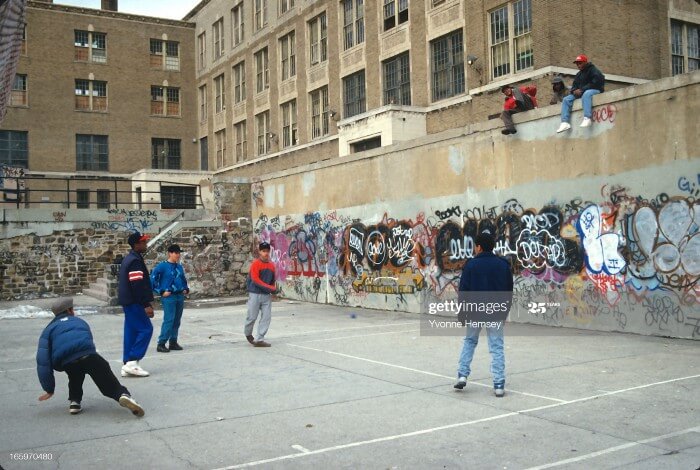
Inner-city youth 1980’s New York.
The city’s inner-city youth — living in poverty throughout its densely-populated boroughs- created ‘something-from-nothing’ in the late 1970s; a vibrant culturally-rich way of life, which even birthed its own rhyme-heavy pulsating soundtrack — rap music.
Before rap music was recorded on wax and profiled in news magazine stories; before Hip Hop culture received deep exploration through documentaries, before it became fictionalized in movies, performed lived on television, meticulously researched and reported in newspaper articles, books and academic journals— years before inner-city and suburban kids from other U.S. cities started channeling their own local and regional interpretations of Hip Hop— the cultural movement was being firmly established by NYC’s (mostly, black and brown) ghetto youth.
Before New York, popular radio personalities, upscale nightclub proprietors, record label executives, and entertainment lawyers embraced hip-hop or even knew it existed; B-boys, DJs, and MCs backed up by beatboxers had intense battles in the park. During these early years of the culture (late 70’s-early 80’s) NYC youth didn’t need OR want any form of validation from anyone who was not directly connected to the city’s myriad of ghetto blocks.
The only kind of credibility that mattered in Hip Hop was ‘street cred’ — and the culture’s core elements; deejaying, tagging (graffiti), beat-boxing, break dancing, and emceeing, operated together to fully embody the relentless spirit of New York’s inner-city youth.
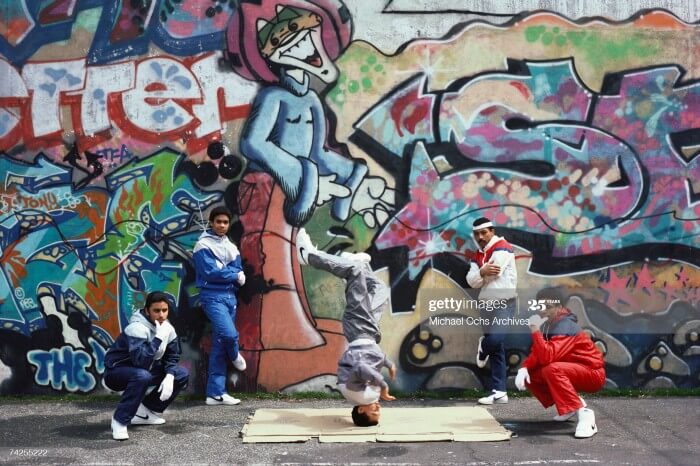
Young B-boys striking a pose in the early years of Hip Hop in NYC.
The growing popularity of Hip Hop culture on the streets of NYC generated celebration AND conflict. Earned respect in the streets was the only way you shined. Where you were from, who you were with, what you represented, along with why (and how) you moved the way you moved, meant everything.
The borough wars — over instrumental events in the culture’s history, such as the specific location of its origin — was on-going and intense. The culture’s originators and early adopters were built for battle. But violence wasn’t necessary. Instead of settling disputes with guns, street crews challenged each other through competition — with breakbeats and graffiti serving as backdrops.
The art of battling (i.e. competition) is the ‘truest’ essence of hip-hop. Battling is the prerequisite for mastering every core element of Hip Hop — not just emceeing — and this includes more recent elements within the culture that have developed over time. Anyone — who was anybody (or wanted to be somebody) — sought Hip Hop supremacy by battling whoever was the best in their particular core competency.
While the DJs (the first ‘hood stars of hip-hop) fought tooth-and-nail for supremacy on the ‘wheels of steel’, it was the MCs who would emerge as the culture’s superstars, and their legendary (and infamous) battles — years before multi-million dollar contracts, homes and jewelry collections — would be forever immortalized in Hip Hop folklore.
There was a time when you couldn’t call yourself an MC; and certainly couldn’t be seen as a Lyrical Luminary, if you weren’t battle-tested. And there’s arguably no other MC; no other Lyrical Luminary, who has a greater propensity for the battle than KRS-One.
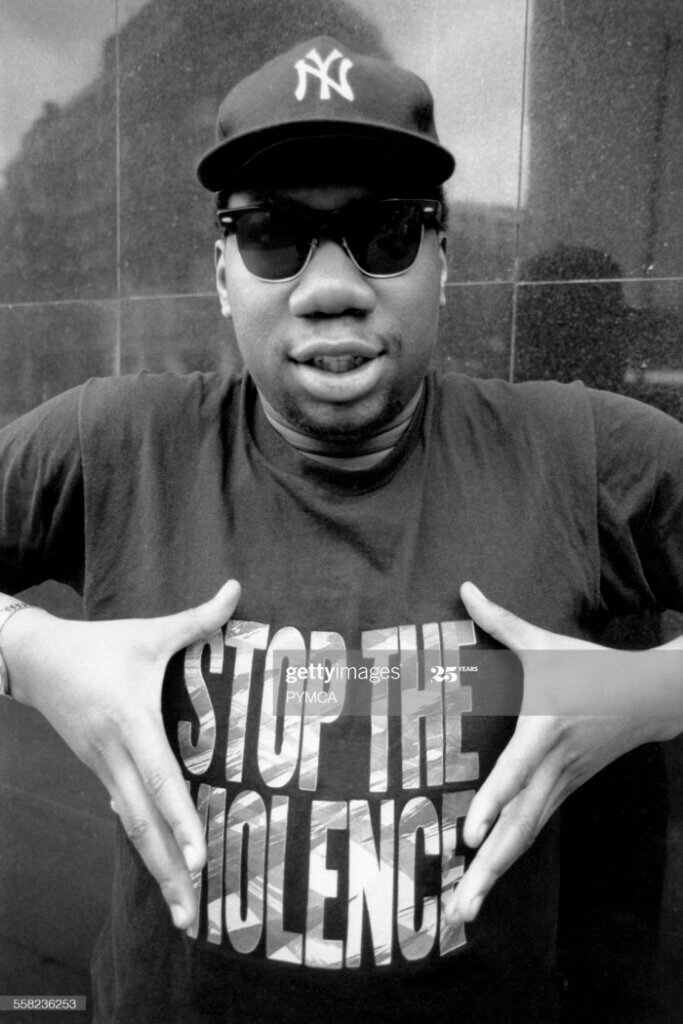
KRS: The Blastmaster is always ready for battle.
The most famous battle in Hip Hop folklore was actually a ‘war’ — the Bridge Wars: The South Bronx vs The ‘Bridge (Queensbridge). And KRS-One; the South Bronx born-and-raised MC, was right in the thick of it.
KRS-One and DJ Scott La Rock led the Bronx-based BDP (Boogie Down Productions) crew while DJ Marley Marl and MC Shan co-commandeered the Queens-based Juice Crew. The battle went back and forth, which began due to a dispute largely over which NYC borough started Hip Hop; over which ‘hood can rightfully claim culture supremacy.
Some may argue that battling in Hip Hop was already past its heyday by 1988–87, however, The Bridge Wars put the urban musical combat sport on center stage and would set the tone for the multitude of battles that would go down within the culture; across generations and thousands of miles of geography.
With all that said, I have yet to highlight any of KRS-One’s lyrics from this famous battle! Don’t worry, I’m about to get to that. I just felt it was important to provide historical context because I think it explains how and why KRS-One’s moment was shaped by the unequivocal tenets of Hip Hop culture; tenets the Bronx MC has stayed true to for the entirety of his MC journey.
“South Bronx”
There have been several ‘hood anthems in Hip Hop that had fans from all over the world beaming with pride even if those same fans never walked the actual streets, or even lived in an environment that remotely resembled the place the MC immortalized on the song.
But the South Bronx is not just any ol’ ‘hood. The record, “South Bronx” isn’t the run-of-the-mill diss song. And KRS-One is definitely not your average MC.
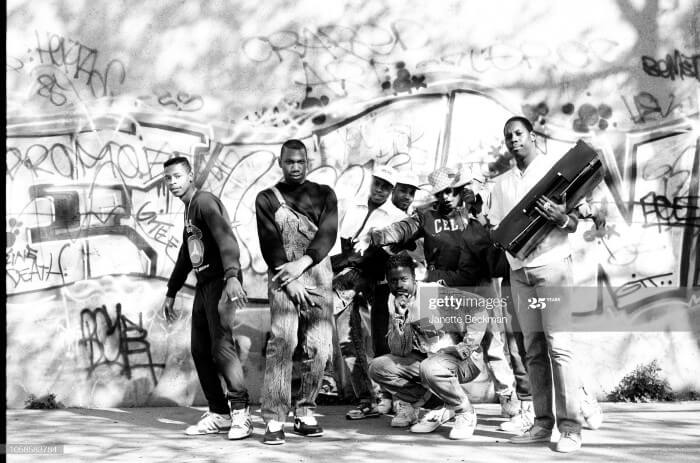
The legendary Hip Hop crew, Boogie Down Productions
The world would come to know Kris as ‘The Teacha’, but make no mistake about it — KRS-One is an MC, and battling is his specialty. KRS-One’s lyrical attacks made this perfectly clear on “South Bronx”; which is partly an ode to his iconic neighborhood, a fascinating Hip Hop history lesson, and a brutal rebuke on what he saw as false implications made by MC Shan in the 1986 Queens ‘hood anthem, “The Bridge”.
The hook to the diss record — proudly (and strongly) shouted out by the BDP crew — sets the tone by letting it be clearly known the name of ‘hood they all hail from:
“South Bronx, the South South Bronx
South Bronx, the South South Bronx
South Bronx, the South South Bronx
South Bronx, the South South Bronx”
But it is KRS-One’s lyrical strike from the onset of the song’s first verse that shows where the battle lines are drawn…
“Many people tell me this style is terrific/It is kinda different/But let’s get specific/KRS-One specialize in music/I’ll only use this type of style when I choose it/Party people in the place to be: KRS-One attacks/You got dropped off MCA ‘cause the rhymes you wrote was wack/So you think that hip-hop had its start out in Queensbridge/If you pop that junk up in the Bronx you might not live…” Source: Rap Genius
KRS-One aggressively makes the case of the Bronx’s Hip Hop supremacy while calling out not only MC Shan (“the rhymes you wrote was wack…”) but the MC’s neighborhood: Queensbridge housing projects. Kris’s attacks on Shan and Queensbridge were unapologetic — and fully aligned with the tenacious tenets of Hip Hop culture.
And The Blastmaster was far from done; check out the start of the second verse…
“I came with Scott La Rock to express one thing/I am a teacher and others are kings/If that’s the title they earn/Well, it’s well deserved/But, without a crown, see, I still burn/You settle for a pebble/Not a stone like a rebel/KRS-One is the holder of a boulder/Money folder/You want a fresh style, let me show ya…” Source: Rap Genius
One of the things KRS-One did right from the beginning of his career is deliberately distinguish himself from other MCs who showed their underlying insecurities by shamelessly giving themselves grandiose titles.
By calling himself ‘ The Teacha’ — in comparison to those MCs who saw themselves as ‘kings’, KRS-One established early in his career that his wealth of knowledge was far greater and more valuable than others’ carelessly-crafted images of frivolous fame and tall tales of material wealth.
There always seemed to be a higher purpose to KRS-One’s bragging that stretched well beyond self-aggrandizement. In KRS One’s battles, he showed off his rhyme superiority and frequently gave street corner style Hip Hop history lessons at the same time…
“Now way back in the days when Hip-Hop began/With Coke La Rock, Kool Herc and then Bam/B-boys ran to the latest jam/But when it got shot up they went home and said, “Damn!”/There’s got to be a better way to hear our music every day/B-boys getting blown away/But coming outside anyway/They tried again outside in Cedar Park/Power from a street light made the place dark/But yo, they didn’t care, they turned it out/I know a few understand what I’m talking about…” Source: Rap Genius
I can remember being a kid, growing up in a D.C. suburb, listening to this incredible verse with total fascination as KRS-One laid out the ‘facts’ of Hip Hop’s beginnings in the streets of the Bronx. My young imagination took me on a brief getaway from my Northern Virginia suburban reality, as KRS-One fondly rhymed out the vivid details of the people, places, and events that shaped the culture’s remarkable history.
But, let us not forget that “South Bronx” is not just a record of cultural nostalgia; it’s a rebuttal of MC Shan’s claim of Queensbridge’s prominence during Hip Hop’s primitive years…
“Remember Bronx River, rolling thick/With Kool DJ Red Alert and Chuck Chillout on the mix/When Afrika Islam was rocking the jams/And on the other side of town was a kid named Flash/Patterson and Millbrook projects/Casanova all over, ya couldn’t stop it/The Nine Lives Crew/The Cypress Boys/The real Rock Steady taking out these toys/As odd as it looked, as wild as it seem/I didn’t hear a peep from a place called Queens…” Source: Rap Genius
I honestly didn’t know fact from fiction because I was not living in New York and wasn’t even born until 1977. However, to my young ears, it sounded as if KRS-One had made a rather convincing argument — with wondrous style.
“The Bridge Is Over”
The back-and-forth between the Juice Crew and BDP made for a great rivalry. KRS-One’s most brutal attack, “The Bridge Is Over” — was a response to MC Shan’s “South Bronx” response (“Kill That Noise”). On the Jamaican-flavored track, KRS-One would come even harder (and more direct) than he did in his “South Bronx” performance.
KRS-One called out MC Shan, DJ Marley Marl, and Mr. Magic by name; and even made an insulting sexual reference toward the ‘First Lady’ of the Juice Crew, Roxane Shante. I won’t print the lyrics here but let me just say; KRS-One definitely did not pull any punches — he swung with the purpose of delivering a career-ending knockout.
Kris succinctly summarized the roles competing boroughs played during Hip Hop’s early developmental period…
“Tell them again, me come to tell them/Manhattan keeps on making it, Brooklyn keeps on taking it/Bronx keeps creating it/and Queens keeps on faking it…” Source: Rap Genius
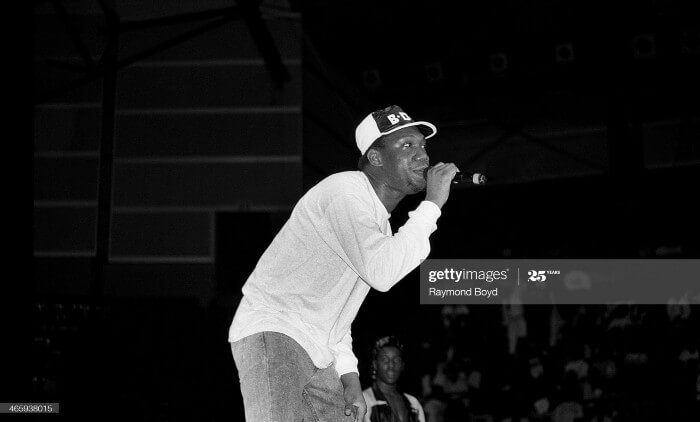
KRS-One doing what he does best: Rock a crowd.
The venom KRS-One shot at The Juice Crew and all of Queensbridge on “South Bronx” and “The Bridge Is Over” wasn’t personal, in fact, it wasn’t business — it was Hip Hop, which largely followed the chaotic code of the streets. KRS-One and his BDP crew were simply adhering to the culture’s sacred tenets — dominate or be dominated.
KRS-One’s ‘moment’ took place during one of the most significant battles in all of Hip Hop history (a battle that most felt KRS-One and his BDP crew won undisputedly), which illustrates the immense strength of his impact on the culture.
But regardless of who the streets thought was victorious in ‘The Bridge Wars’ — the battle ended up being a victory for hip-hop; the impact of the rivalry, throughout the streets of New York, was like an earthquake with a magnitude of 7.0 on the Richter scale, with its tremors being felt well beyond the five boroughs.
In its aftermath, ‘The Bridge Wars’ inspired MCs, DJs, B-boy crews, and entire ‘hoods across NYC and beyond to establish their own visions of greatness within the emerging Hip Hop culture.
The conflict clearly solidified KRS-One as one of the fiercest MCs in Hip Hop. Kris would channel that fierceness in many more battles throughout his long career; and even more importantly, the South Bronx MC would leverage his total devotion to the culture to spread the power of its core principles and elements to ‘hoods throughout the world.
The Rise
The three albums that established KRS-One as a certified great MC: Criminal Minded (1987). By All Means Necessary (1988) Ghetto Music: The Blueprint of Hip-Hop (1989)
KRS-One released quite a few solo albums in his career but from the start, his crew, Boogie Down Productions, have been his firm foundation. KRS-One is BDP and BDP is KRS-One; the artistry of both is synonymous.
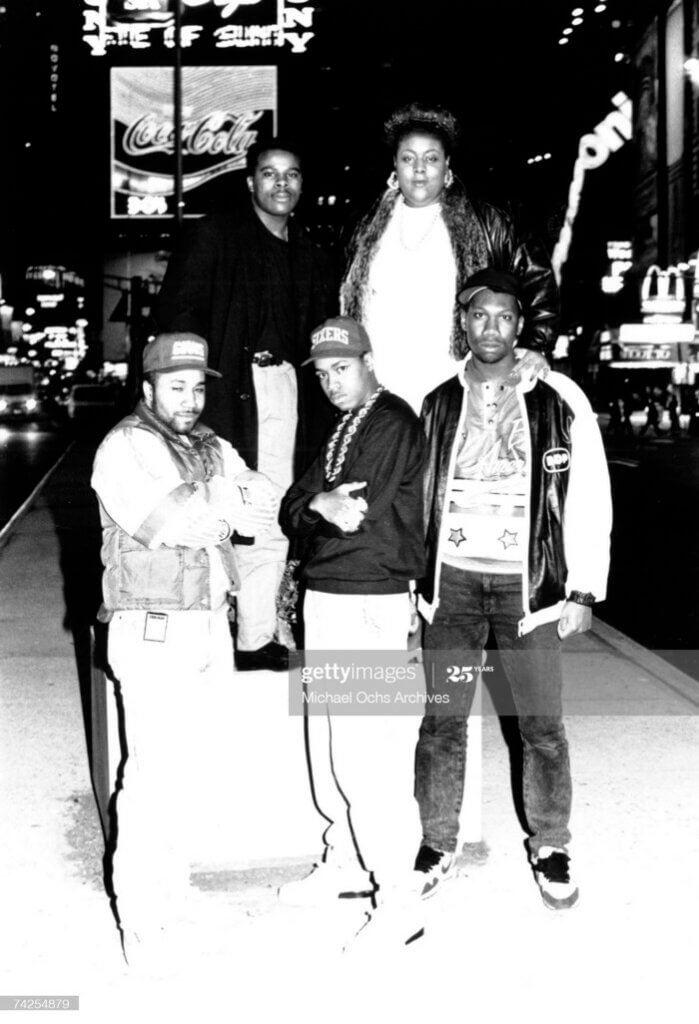
The crew representing the ‘Boogie Down’ Bronx in Time Square.
The BDP albums are the most significant releases in KRS-One’s immense catalog for a number of reasons. For one thing, the albums established KRS as a great MC; a Lyrical Luminary. But the BDP albums also played an important role in moving the entire culture forward. BDP’s music was instrumental in raising the consciousness of Hip Hop youth.
The group’s first three albums: Criminal Minded (1987), By All Means Necessary (1988), and Ghetto Music: The Blueprint (1989) transformed BDP from a championship-caliber crew into a full-fledged movement. Yes, the crew represented the ‘Boogie Down’ Bronx to the fullest; but their movement — led by DJ Scott La Rock and KRS-One — their bigger purpose; was to elevate Hip Hop culture to higher heights.
The fulfillment of that purpose all started with the crew’s debut album, Criminal Minded (1987).
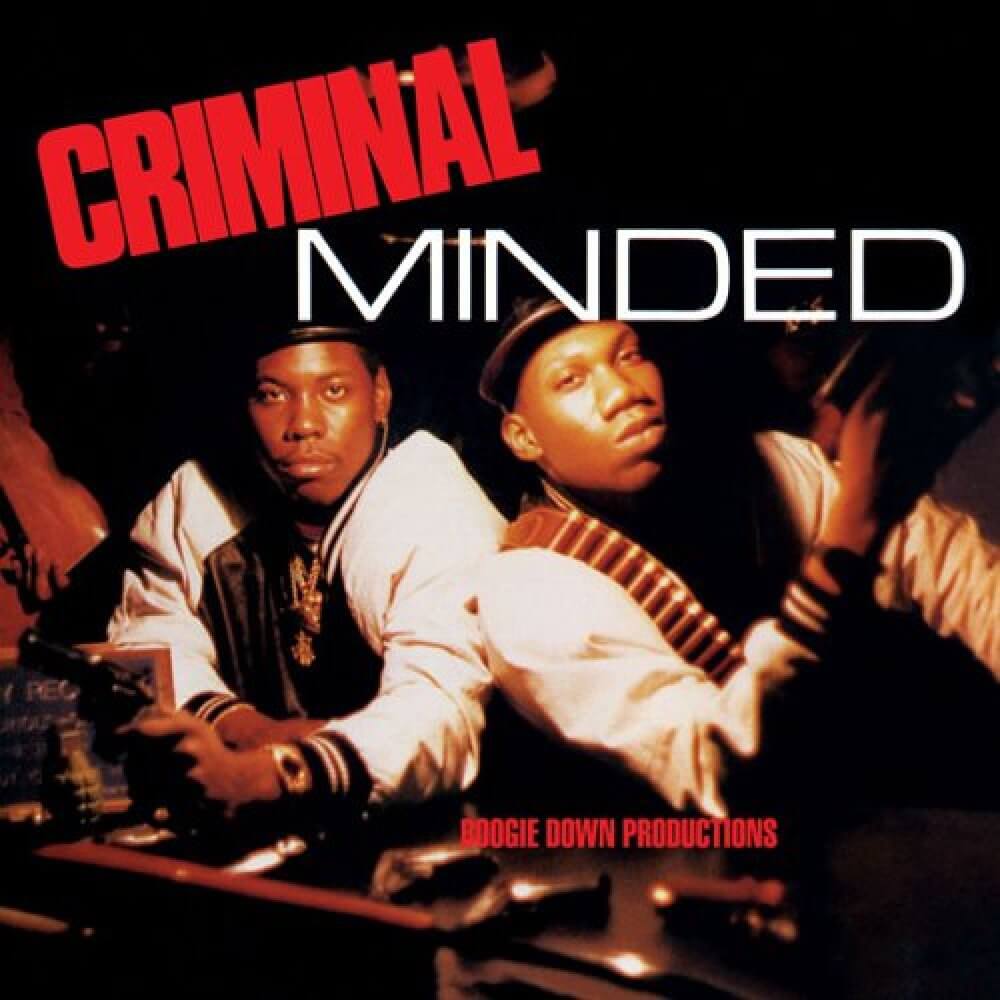
Criminal Minded (1987) (B-Boy Records)
There are different ways to describe Criminal Minded, but to state it simplistically: Criminal Minded is one of the most Hip Hop albums of all time.
Some consider Criminal Minded to be one of the (if not the) first ‘gangsta’ rap albums. And with songs featured on the album like “9mm Goes Bang”, I can see how they might come to that conclusion. Here’s a characteristic to describe the feel of the album for which there is general consensus among Hip Hop fans: HARDCORE.
KRS-One and the BDP crew were prominent players in the production of authentic hardcore Hip Hop; with no filter. Hardcore was the flag they proudly waved on full display on Criminal Minded. But their brand of hardcore was different from other crews. The beginnings of KRS-One’s ‘hardcore consciousness’ style was in its early stage on BDP’s debut album.
The ability to ‘drop knowledge’ and still ‘come hard’ might be what most distinguished KRS from other MCs. Criminal Minded is a full illustration of this dual attack. There are multiple lyrical highlights from this album (including aforementioned diss records, “South Bronx” and “The Bridge Is Over”) — allow me to share a couple.
“Poetry”
Starting out the classic ’87 album, this record demonstrates the pull of a masterful rhyme when coupled with a ‘knocking’ drum beat (along with what was a-then customary funky James Brown sample). KRS-One positioned himself as more than an MC — he’s always been a teacher whose lyrical performances are intellectual workouts for listeners focused on getting their minds in shape.
“Well, now you’re forced to listen to the teacher and the lesson/Class is in session, so you can stop guessing/If this is a tape or a written down memo/See, I am a professional, this is not a demo/In fact, call it a lecture, a visual picture/Sort of a poetic and rhythm-like mixture/Listen, I’m not dissing, but there’s something that you’re missing/Maybe you should touch reality, stop wishing/For beats with plenty bass and lyrics said in haste/If this meaning doesn’t manifest, put it to rest/I am a poet, you try to show it, yet blow it/It takes concentration for fresh communication…” Source: Rap Genius
Later, in the song’s second verse, KRS-One addresses one of the most prevalent themes in his lyrics: Sucker MCs with false ‘VIP’ visions.
“KRS-One will have to show another MC/Or self-proclaimed king or queen/Or gang, or crew, or solo, or team — that I mean/Business/ So tell me, what is this?/See, I come from the Bronx/So just kiss this…” Source: Rap Genius
“Dope Beat”
The beat on this record has that Run-D.M.C flavor; in fact, Kris even takes a little shot at Run’s penchant for Adidas sneakers on the song. But “Dope Beat” isn’t about dissing anyone in particular — it’s about disrespecting anybody who thinks they can match up with KRS or his BDP crew, for that matter.
Here’s the bottom half of the second verse.
“Get it right the first time I won’t repeat this rhyme/If you think that you can burn me with your amateur ways/Keep in mind that I been out there from back in the days/I don’t brag about the people I know/Because they’re still bluffing/They’re not giving me nothing/I can walk around the city with the rhymes I flaunt/Cause no matter how you front/It’s still the ones you want/See, I am funky fresh and poetry is my opinion/Taking out you suckers while Scott La Rock is spinning…” Source: Rap Genius
Kris kicked a dope rhyme on top of a dope beat.
BDP’s Criminal Minded debut is a hip-hop album of ‘hardcore consciousness’ with reggae influences and ‘gangsta’ elements laced throughout. It’s a must-listen for anybody who wants to know how ‘the realest of real’ Hip Hop sounded like during the culture’s first decade.
KRS-One and the BDP crew would face a blindsiding tragedy less than a year before the release of their second album, By All Means Necessary (1988). But it didn’t derail their movement; it only made it stronger.
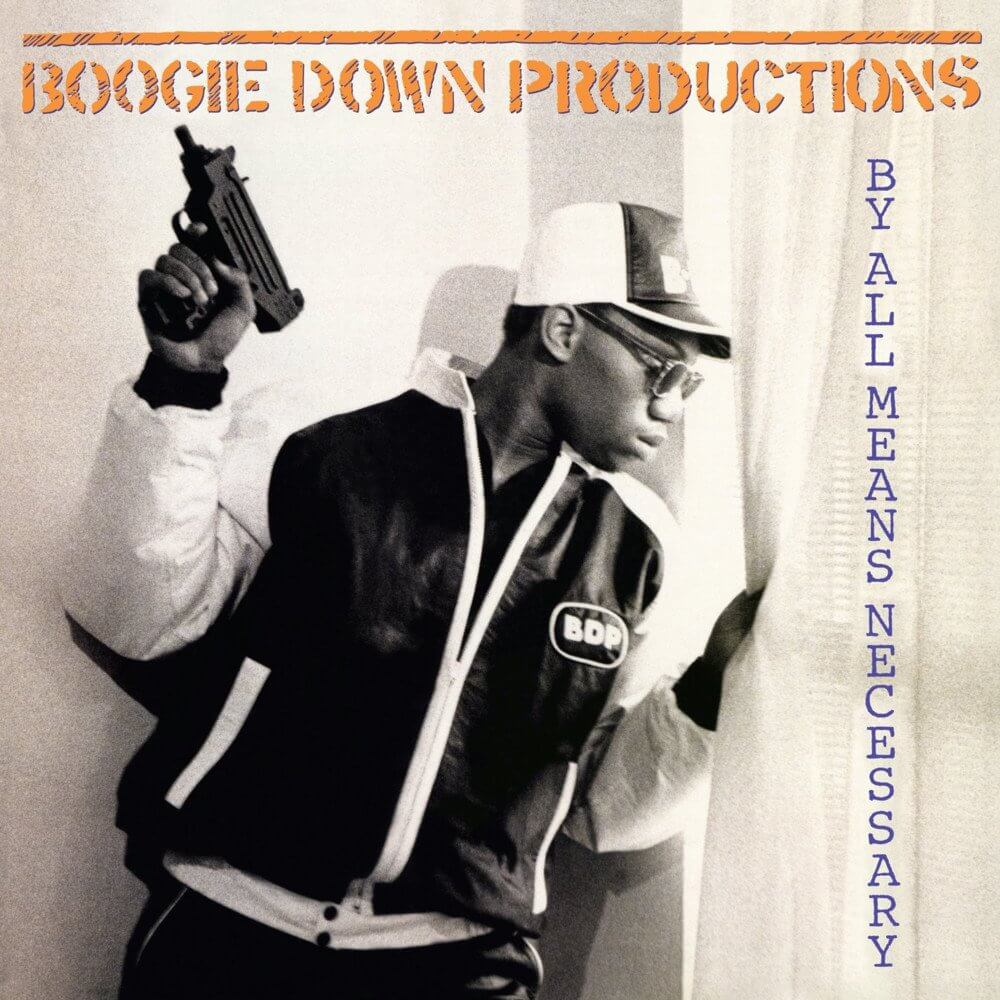
By All Means Necessary (1988) (Jive Records)
As a kid, I didn’t realize the breadth of the role DJ Scott La Rock played within Boogie Down Productions or the depth of the bond he shared with KRS-One. I just knew that I really liked the crew’s music! Still, it was this album; By All Means Necessary, that brought fans closer to understanding the impact Scott La Rock had on the BDP crew.
Scott La Rock was tragically shot and killed — ironically, in the Bronx; a place BDP represented to the fullest — on August 27, 1987, after attempting to resolve a conflict BDP member, D-Nice, had with some guys over a young woman. I don’t know if La Rock’s murder was Hip Hop’s first tragedy, but I can imagine it was one of those “do you remember where you were” moments among NYC’s Hip Hop community at the time.
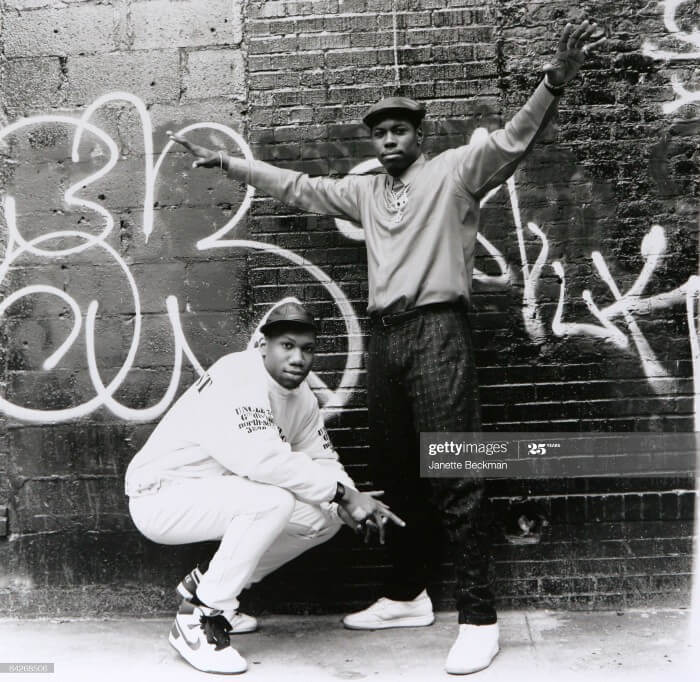
KRS-One and his eternal brother in Hip Hop, DJ Scott La Rock
Behind this dark cloud of tragedy was the triumphant light of the sun — that light; with added brightness from the spirit of Scott La Rock, blessed KRS-One and the BDP crew with an abundance of creative energy, which culminated in the production of a perennial Hip Hop album.
By All Means Necessary is a great album; it was ‘gangsta’, scholarly, and political (right down to the Malcolm-X inspired album cover). The sum of the album’s three-pronged attack (with spirituality sprinkled throughout) was pure, uncut ‘hardcore consciousness’, which would go on to become a formidable formula employed by KRS-One throughout his esteemed career.
I could easily dig a little into each song; instead, I’ll focus on two of my favorite records on BDP’s sophomore project. Let’s start with the one that is in my personal Top 10 list of greatest Hip Hop songs of all-time: “My Philosophy”.
“My Philosophy”
Earlier, I described Criminal Minded as being one of the most Hip Hop albums ever made. Well, “My Philosophy”, in my humble opinion, is one of the most Hip Hop songs ever made.
I’m heaping genuine high praise for a record I’ve loved for over three decades, by calling it “the most Hip Hop record”, and yet it still feels like my impetuous characterization doesn’t do justice to the kind of impact “My Philosophy” had on the culture.
Many of the songs in KRS-One’s incredible catalog recorded after By All Means Necessary, books he’s authored, as well as his ventures into the halls of scholarship as a sought-after lecturer, fortified Kris’s reputation as a respected philosopher. But let’s be clear: “My Philosophy” undoubtedly built — from the ground up — that well-deserved reputation.
In some ways, “My Philosophy” is a continuation of the lyrical strike Kris dished out on “South Bronx”. But instead of coming specifically at MC Shan, Marley Marl, the Juice Crew, and Queensbridge — on “My Philosophy”, KRS-One (backed by Boogie Down Productions) was coming for EVERYBODY.
Fitting to the song’s title, KRS-One’s lyrical lecture detailed his ideology on the state of Hip Hop as he submitted his cultural resume fully disclosing why he was qualified to speak. Of course, Kris NEVER needed to ‘apply’ for anything even remotely connected to Hip Hop, and NO ONE — at any time — would have had the audacity to try and check his credentials.
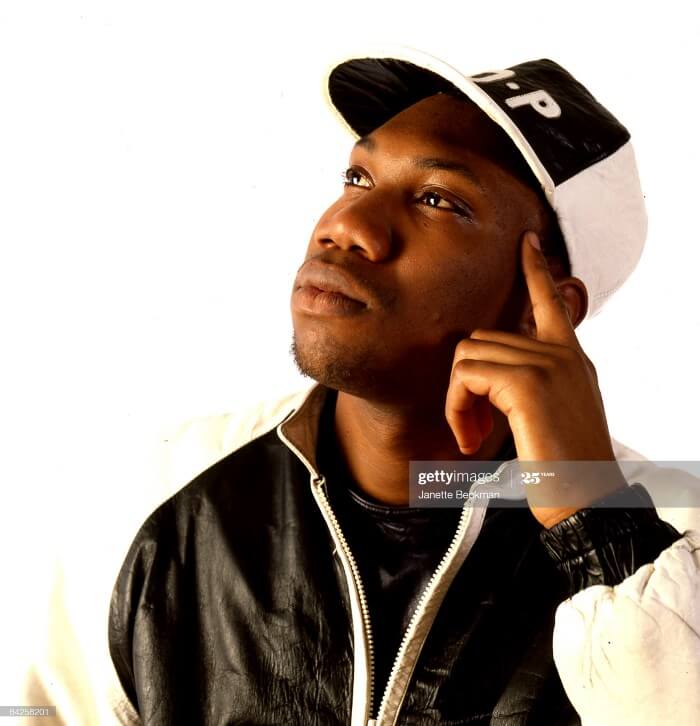
KRS-One: Hip Hop’s Prophetic Philosopher
Kris’s lyricism on “My Philosophy” can be likened to a premiere performance by a powerhouse vocalist, or a majestic moment for a world-class trumpeter as he plays a superb solo for a captivated audience.
“My Philosophy” is the gold standard of Hip Hop’s Golden Age. Everything about the song — including its music video — is authentic Hip Hop. If a young fan from today’s generation was only allowed to hear five songs that best epitomized the Golden Age Era, “My Philosophy” is the first, second, third, fourth — and fifth record he must [hear] learn!
‘Real’ BDP fans understand the dual reference…
On a personal note: “My Philosophy” is one of the stand-out songs that made me fall in love with Hip Hop.
To be clear, KRS-One was already considered a Lyrical Luminary (even if no one actually used that specific term at the time to highlight elite MCs) before the release of “My Philosophy”. But after KRS-One’s performance on this record — his lyrical endowment was soundly undisputed.
(I really, really…really want to present the song lyrics of “My Philosophy” in its entirety, but I’ll just share some of the brightest bars from each of the song’s three verses.)
“Let us begin/What, where, why or when/Will all be explained like instructions to a game/See I’m not insane, in fact I’m kind of rational/When I be asking you, “Who is more dramatical?”/This one or that one/The white one or the black one/Pick the punk and I’ll jump up to attack one/KRS-One is just the guy to lead a crew/Right up to your face and diss you…” Source: Rap Genius
Here’s part of the second verse (which is actually my favorite part of the entire song)…
“I’ll play the nine and you play the target/You all know my name so I guess I’ll just start it/Or should I say start this, teaching/ I’m the artist/Styles and new concepts at their hardest/Yo, ’cause I’m a teacher and Scott is a scholar/It ain’t about money cause we all make dollars/That’s why I walk with my head up/When I hear wack rhymes, I get fed up/Rap is like a set-up, a lot of games/A lot of suckers with colorful names/I’m so-and-so/I’m this, I’m that/Huh/But they all just wick-wick-wack/I’m not white, or red, or black/I’m brown/From the Boogie Down…” Source: Rap Genius
And finally, here’s the top half of the song’s last verse.
“How many MCs must get dissed/Before somebody says, “Don’t f*** with Kris!”?/This is just one style, out of many/Like a piggy bank, this is one penny/My brother’s name is Kenny/That’s Kenny Parker/My other brother I.C.U. is much darker/Boogie Down Productions is made up of teachers/The lecture is conducted from the mic into the speaker…
…Who gets weaker: the king or the teacher?/It’s not about a salary, it’s all about reality/Teachers teach and do the world good/Kings just rule and most are never understood/If you were to rule or govern a certain industry/All inside this room right now would be in misery/No one would get along/Nor sing a song/Cause everyone’d be singing for the king/Am I wrong?…” Source: Rap Genius
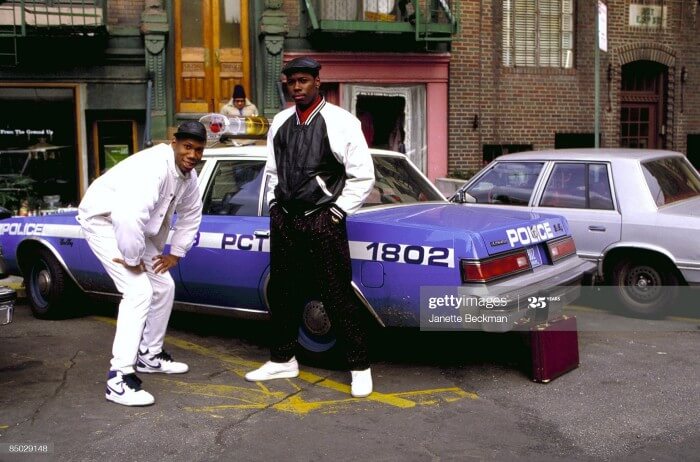
By All Means Necessary album is a tribute to the lasting impact of DJ Scott La Rock.
At its core “My Philosophy” is a love record; love for Hip Hop and a song of brotherly love. It’s a tribute — from KRS-One and the whole BDP crew — to DJ Scott La Rock.
“Let us get back to what we call hip-hop/And what it meant to DJ Scott La Rock…” Source: Rap Genius
It was clear that KRS-One was determined to keep DJ Scott La Rock’s spirit alive and well in BDP’s movement and in all of Hip Hop. “My Philosophy” — in its totality — is a display of incredible lyricism.
“I’m Still #1”
Even though Hip Hop was just over a decade old or so at the time of the release of By All Means Necessary (1988), its landscape was changing starkly and rapidly. The culture was in the early years of its Golden Age Era; incredibly, the tremendous diversity within the culture’s artistry had some MCs who were just two or three albums deep into their careers, looking and sounding “old” to its growing youth audience.
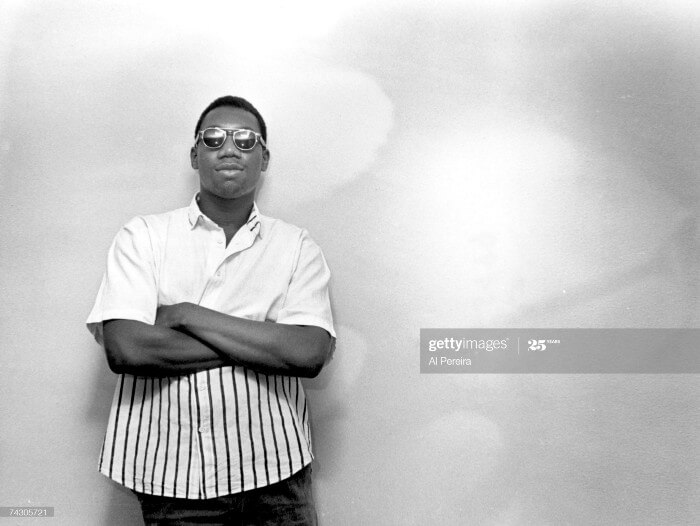
KRS-One is a leader of leaders in Hip Hop
KRS-One was no rookie — but he still sounded ‘fresh’! The BDP movement advanced to the forefront of the culture and made a persuasive argument that regardless of who came out, when they came out, how they came out — and no matter where they were from — KRS-One and his crew, as the title of this record states, would still be #1.
“…Let us begin to teach/Many of you are educated, open your mouth and speak/KRS-One is something like a total renegade/Except I don’t steal, I rhyme to get paid/Airplanes flying/Overseas people dying/Politicians lying/I’m trying/Not to escape, but hit the problem head-on/By bringing out the truth in a song/So BDP, short for Boogie Down Productions/Made a little noise ‘cause the crew was saying something…” Source: Rap Genius
KRS-One continued his personal and artistic elevation with the release of By All Means Necessary; its release occurred doing a critical formative period in the BDP movement. The project is truly a necessary listen for fans (and curious observers) of true Hip Hop.
I don’t know if there was anyone more qualified (well, at least during this period of time) than KRS-One to lay out the blueprint for the cultivation of Hip Hop culture.
Sure, I suppose some could say that a single entity claiming sole authority over the highly competitive landscape of Hip Hop is doing so at his own peril. But KRS-One was not just another random guy grabbing for the microphone to get attention. Boogie Down Productions was not a ‘lost’ movement, traveling with a sputtering engine. The Bronx-based crew had more than enough cultural and intellectual horsepower to reach their destiny for greatness.
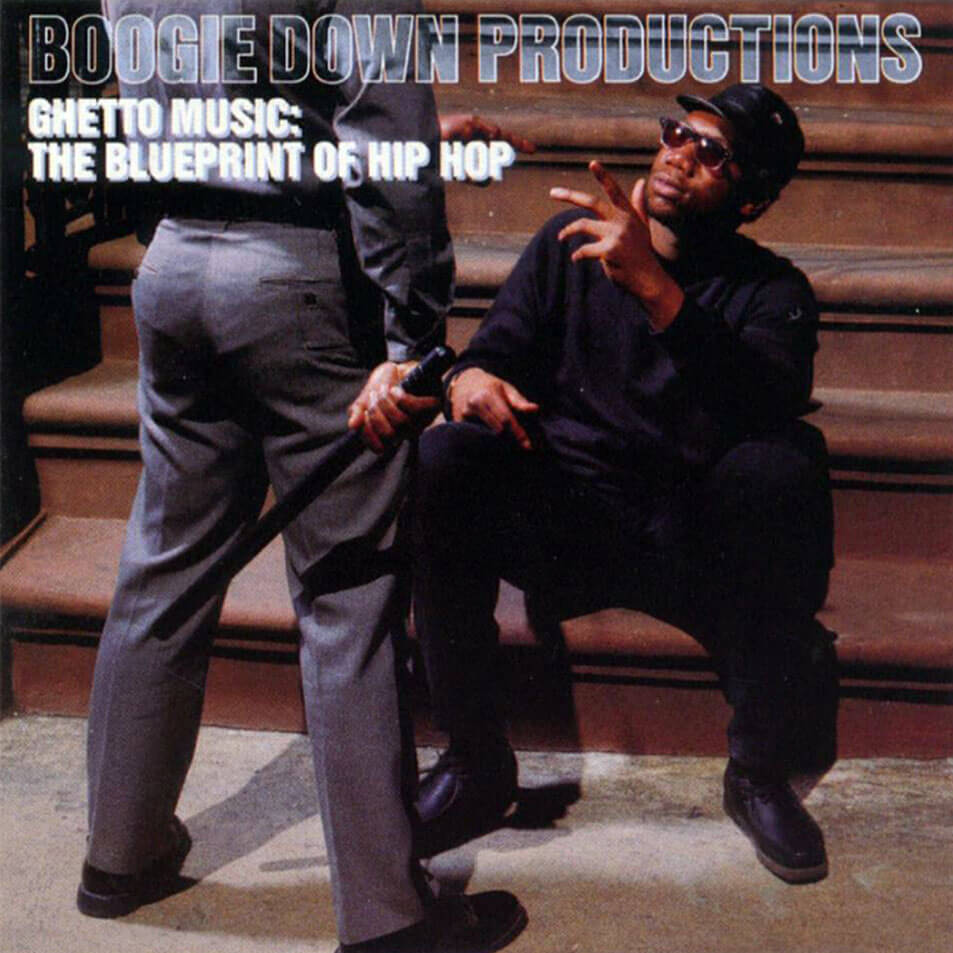
Ghetto Music: The Blueprint of Hip-Hop (1989) (Jive Records)
Advancing ‘hardcore consciousness’ was clearly the focal point of BDP’s agenda with the release of Ghetto Music: The Blueprint of Hip Hop (1989). KRS-One was one of the most vocal MCs in a largely New City-based campaign to elevate Hip Hop culture beyond the ego-driven conflicts that proliferated throughout its geographically-expanding platform.
Now, that doesn’t mean KRS-One (backed by BDP) would ever forfeit his standing in the battle of Hip Hop supremacy. Kris was simply broadening the horizons of the BDP campaign by embracing the bigger purpose of addressing the wide range of issues plaguing Hip Hop — in the growing number of communities representing the culture around the world.
BDP — led by KRS-One — was not the only group advancing the worthy cause of social consciousness in Hip Hop. Public Enemy — led by Chuck D — immediately comes to mind as a group whose arc of political artistry was similar to BDP’s agenda.
Boogie Down Productions’ mission differed from others, however, mainly due to the scholarly approach of its leader, KRS-One. His commentary and analyses on such social issues as police brutality on the Ghetto Music album (listen to: “Who Protects Us From You?”) spearheaded a promising trend of thought-provoking (but, still hardcore) consciousness severely needed in Hip Hop.
I was going through my own personal period of development — called ‘puberty’ — when Ghetto Music was released in 1989. I will spare you the details of the physical part (frankly, it’s TMI), but I will share a little bit about the shaping of my mental state during this time.
In 1989, I was a pre-teen attending a D.C.-area middle school in a Northern Virginia suburb. I was smart, but unfortunately, I had already started losing interest in much of what was being taught in the classroom. Yes, I fell into the typical traps of distraction that lure just about every boy at that age.
But my disconnect was deeper than the behavioral tendencies of a rebellious pubescent preteen. I was seeking knowledge well beyond my limited life experience (which included the monotonous days of school), and an increasing amount of my thirst for that knowledge was being quenched by the ‘hardcore consciousness’ of Hip Hop.
And most of those ounces of liquid knowledge came from the lyrical reservoir of KRS-One.
“You Must Learn”
This is one of BDP’s most memorable records. KRS-One’s lyrics taught me things about black history (and world history) that I didn’t know. As I listen to this song today (which I’ve probably heard several hundred times since its 1989 release); in hindsight, I can’t ignore the attacks from critics who claim that some of the ‘facts’ stated by KRS-One in the song are purely pseudo-history.
Nevertheless, “You Must Learn” sparked my interest (as I presume it did for many others within my generation) in the pursuit of scholarship inside — and outside of academic institutions — particularly, Afro-centric scholarship covering the ‘hidden’ history of black people around the world.
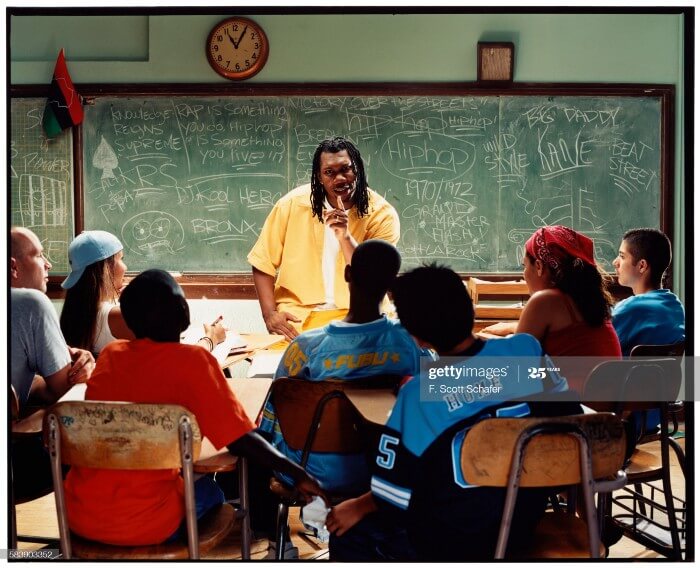
When it comes to the lyricism of KRS-One: Class is ALWAYS in session.
An Afro-centric approach to scholarship was certainly not new in the late ’80s, but this pedagogy — repurposed through ‘hardcore conscious’ Hip Hop — became a ‘core curriculum’ — that all of a sudden — had many so-called ‘troubled’ students in America’s failing schools clamoring to enroll in its ‘musical’ courses.
BDP’s “You Must Learn” was one of those required (and most popular) classes.
“Knowledge reigned supreme/The ignorant is ripped to smithereens/What do you mean when you say I’m rebellious/Cause I don’t accept everything that you’re telling us/What are you selling us/The creator dwelling us/I sit in your unknown class while you’re failing us/I failed your class cause I ain’t with your reasoning…” Source: Rap Genius
After KRS-One summed up the complaints many black students have about school, he then provides insight into the plight faced by all students.
“I believe that if you’re teaching history/Filled with straight up facts no mystery/Teach the student what needs to be taught/Cause black and white kids both take shorts/When one doesn’t know about the other ones’ culture/Ignorance swoops down like a vulture/Cause you don’t know that you ain’t just a janitor/No one told you about Benjamin Banneker/A brilliant Black man that invented the almanac/Can’t you see where KRS is coming at..” Source: Rap Genius
As with “My Philosophy”, “You Must Learn” had a long-lasting impact on me. But while “My Philosophy” was one of the first records that made me fall in love with hip-hop, “You Must Learn” gave me an even more valuable asset; it inspired me to study — to pursue a never-ending quest for knowledge.
“Who Protects Us From You?”
This song — which addresses police brutality in the black community — is certainly a timely record. Unfortunately, it’s a poor reflection on society that a song recorded over 30 years ago — about boiled-over tensions between the police and black people — is still very relevant today; but it’s true. “Who Protects Us From You?” carried on the growing tradition of a long line of protest songs that defended the defenseless by tackling the rabid rush of racism pervading the gridiron streets of urban America.
“You were put here to protect us/But who protects us from you?/Every time you say “That’s illegal”/Doesn’t mean that that’s true (Uh-huh)/Your authority’s never questioned/No one questions you/If I hit you, I’ll be killed/But you hit me?/I can sue/Looking through my history book/I’ve watched you as you grew/Killing blacks and calling it the law/And worshipping Jesus too/There was a time when a black man couldn’t be down with your crew/Now you want all the help you can get/Scared?/Well ain’t that true…” Source: Rap Genius
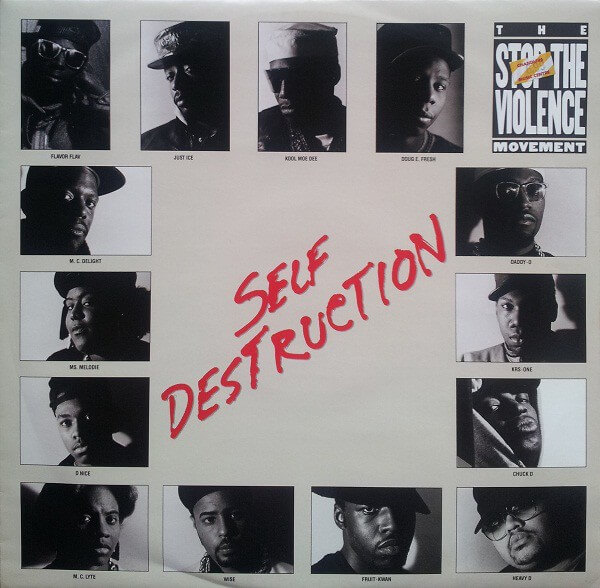
The release of Self-Destruction was a great moment for Hip Hop.
“Self-Destruction” (1989)
Before moving on to KRS-One’s peak, I would like to take some time to discuss what I feel is a moment in Hip Hop that its Golden Age generation should be most proud of: the release of two socially conscious records by the Stop the Violence Movement (East Coast artists) and the West Coast Rap All-Stars.
These two separate songs — “Self Destruction” and “We’re All In the Same Gang” — performed by a compilation of MCs representing their respective U.S. coasts, had a positive impact on the culture. It could very well be argued that the release of both songs is Hip Hop’s greatest moment.
Unsurprisingly, KRS-One, and the BDP crew were very instrumental in making it happen. KRS-One didn’t play a role in the recording of the west coast record but he led the creation of the east-coast-based “Self Destruction”, which was released in January 1989 before “We’re All In the Same Gang” came out.
The intro to “Self-Destruction” is a short excerpt from one of Malcolm X’s famous speeches — “Message to the Grassroots” (1963). The straight-to-the-point cautionary chorus starts the socially conscious party. And then — rather appropriately — the next voice you hear is ‘The Teacha’, calling class into session.
“Well, today’s topic/Self destruction/It really ain’t the rap audience that’s bugging/It’s one or two suckers/Ignorant brothers/Trying to rob and steal from one another/You get caught in the mid/So to crush the stereotype/Here’s what we did/We got ourselves together/So that you could unite and fight for what’s right/Not negative ‘cause the way we live is positive/We don’t kill our relatives…” Source: Rap Genius
Criminal Minded, By All Means Necessary, Ghetto Music: The Blueprint of Hip-Hop, and The Stop the Violence Movement, were all conceived by ‘The Teacha’, KRS-One — with unflinching backup from Boogie Down Productions. The rising period (1987–1990) when this incredible collection of artistry was released is quite an impressive run.
KRS-One and Boogie Down Productions weren’t anywhere close to slowing down at the dawn of a new decade. In fact, in the 1990s, KRS-One; along with D-Nice, Ms. Melodie, Kenny Parker, DJ Red Alert (and a host of others a part of the movement), would only get stronger, reach higher, and last longer than even the best-performing MCs from their esteemed Hip Hop class.
The Peak
The 7-year run when KRS-One was at the very top of his game.
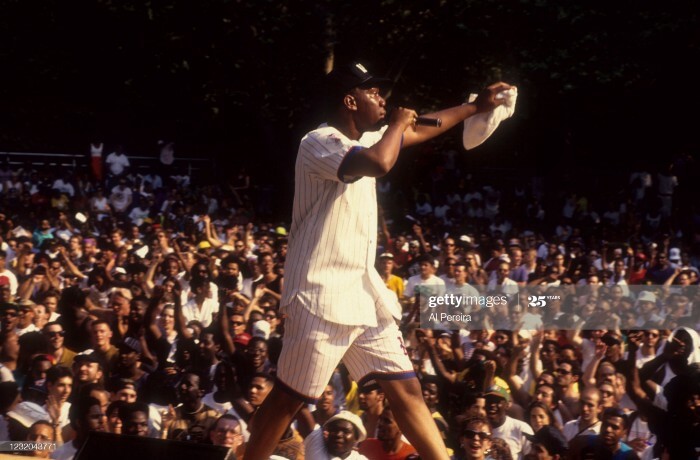
KRS-One and BDP were headliners during Hip Hop’s Golden Age.
I don’t know if there’s an MC more deserving of this deep-dive undertaking I’ve titled Lyrical Luminary, than KRS-One. And this 7-year peak period of his career is the main reason why. Sure, there are several Lyrical Luminaries who’ve had higher peaks than KRS-One but there are few whose peaks have lasted as long as The Teacha’s.
Even though KRS is a certified legend in Hip Hop, I still don’t think he gets enough recognition for his contributions to the culture. And as Kris would ask…
“Why Is That?”
The truth is crystal clear: many MCs who came into the game around the same time as Kris (and after) flamed out, while he kept producing solid, authentic, no-nonsense Hip Hop for years. KRS-One was persistent; he refused to abandon or even put a brief hold on his mission, which is to give the masses that ‘real’ Hip Hop at the highest level.
In my humble estimation, KRS-One’s peak is about 5 albums deep, over an approximate 7-year period. The Teacha’s peak actually covers two periods in his career — the continuation of the Boogie Down Productions catalog (1990–92), as well as the first three releases in his outstanding solo portfolio (1993–97).
There isn’t a gap between the two periods of artistry; BDP albums and KRS albums are flawlessly interwoven without a crease or a wrinkle.
The connection between KRS-One and Boogie Down Productions have always been constant and consistent. Other MCs have been a part of groups and then left to go solo. KRS-One never ‘left’ BDP and the BDP movement does not exist or persist without KRS; both entities are one-in-the-same.
So, let’s go ahead and dig a bit into the greatest period of KRS-One’s career. There are several albums to cover and due to time and space consideration, I won’t go all the way in — but I will certainly do my best to share with you some of the best moments from each.
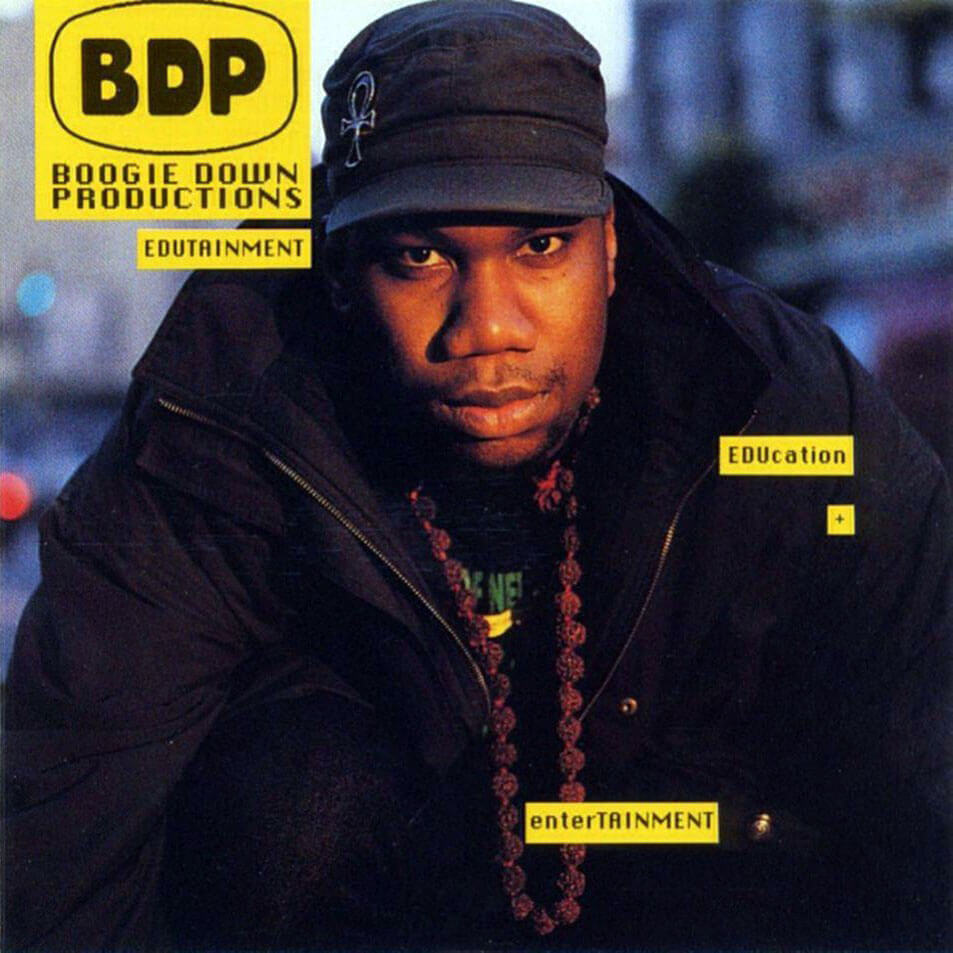
Edutainment (1990) (Jive Records)
Kris could certainly hold his own on the solo tip (which he has gone on to prove for over three decades) but his impact has always been that much stronger when fully supported by his Boogie Down Productions crew.
BDP’s follow-up project to the Ghetto Music album is when I think the crew was at its zenith.
Here’s my personal opinion: Edutainment (1990) is Boogie Down Productions’ best album. And KRS-One’s performances on the album include some of the most substantive lyrics ever spoken in Hip Hop. This was the album that cemented his status as Hip Hop’s top intellectual. And the title of the album, Edutainment, aptly described the project’s musical collection.
The album is elite excellence in both areas — education and entertainment. The Teacha is teaching — as fans had come to expect from Kris, but he doesn’t compromise the core principles of Hip Hop by doing so. A variety of timely issues are covered on the album. In Edutainment, KRS-One and his crew found the perfect balance throughout. KRS-One’s performances on the album showed complete mastery of the ‘sweet science’ of hip-hop; like a pound-for-pound boxer dominating a highly anticipated prizefight.
On to the lyrics…
“Blackman In Effect”
Even at such a young impressionable age, I was keen enough to have a special admiration for leaders who knew how to ‘teach, not preach’ black pride. It’s one thing to be proud of who you are but there’s a different kind of pride you feel when you know your history — when you’ve become wise as to why you should be proud of your heritage when the world tries to tell you otherwise.
On “Blackman In Effect”, KRS-One gives listeners facts as compelling evidence for why black people should have pride in themselves; not fictional tales that only create a false sense of security, strength, and solidarity.
“But anyway, I say today, the message I create is great/I don’t preach hate, I simply get the record straight/It’s not the fault of the black race that we are misplaced/We’re robbing and killing, your own medicine you taste/You built up a race on the concept of violence/Now in ’90 you want silence/Well, I want science/Not silence, but science/Scientific fact about black…” Source: Rap Genius
“Love’s Gonna Get’cha (Material Love)”
“My Philosophy” is my favorite BDP record but “Love’s Gonna Get’cha” is most definitely in my personal Top 5. Storytelling rap has always been popular in Hip Hop and it’s the best-of-the-best within the genre when well-executed.
Perfect execution is what KRS-One easily pulls off in “Love’s Gonna Get’cha”. KRS shares a simple cautionary tale set in the ‘hood in which he plays an around-the-way kid who gets pulled into the poisonous spoils of the streets when he’s “employed’ to work in one of the ghetto’s most dangerous ‘jobs’: as a runner for the ‘neighborhood’ drug dealer.

Love’s Gonna Get’cha is one of the best storytelling Hip Hop songs ever made.
Here’s the bulk of the first verse.
“I’m in junior high with a B plus grade/At the end of the day I don’t hit the arcade/I walk from school to my mom’s apartment/I got to tell the suckas everyday “Don’t start it!”/’Cause where I’m at, if you’re soft you’re lost/To stay on course means to roll with force/A boy named Rob, is chillin’ in a Benz/In front of my building with the rest of his friends/I give him a pound, oh I mean I shake his hand/He’s the neighborhood drug dealer, my man/I go upstairs and hug my mother/Kiss my sister/And punch my brother/I sit down on my bed, to watch some TV/Do my ears deceive me?/Nope, that’s the fourth time this week/Another fast brother shot dead in the street…
…The very next day while I’m off to class/My moms goes to work cold busting her a**/My sister’s cute but she got no gear/I got three pairs of pants with my brother I share/See, there in school/See, I’m made a fool/With one and a half pair of pants, you ain’t cool/But there’s no dollars for nothing else/I got beans, rice, and bread on my shelf…
…Everyday I see my mother struggling/Now it’s time, I’ve got to do something/I look for work/I get dissed like a jerk/I do odd jobs/And come home like a slob/So here comes Rob/His gold is shimmery/He gives me two hundred for a quick delivery/I do it once/I do it twice/Now there’s steak with the beans and rice…” Source: Rap Genius
The first verse sets the stage, the second verse adds to the drama, while the third verse details a tragic ending that occurs far too often in everyday life on the streets. “Love’s Gonna Get’cha” tells quite a compelling story and its lyrics read like the climax of a bestselling ‘street lit’ novel.
I would gladly post more song lyrics from this great album but we have to keep moving. But, I’ll just say this: the three-pronged attack (again; sprinkled with spirituality) KRS-One unleashed on By All Mean Necessary in 1988 seemed completely unstoppable by the time Edutainment was released about 2 years later in 1990.
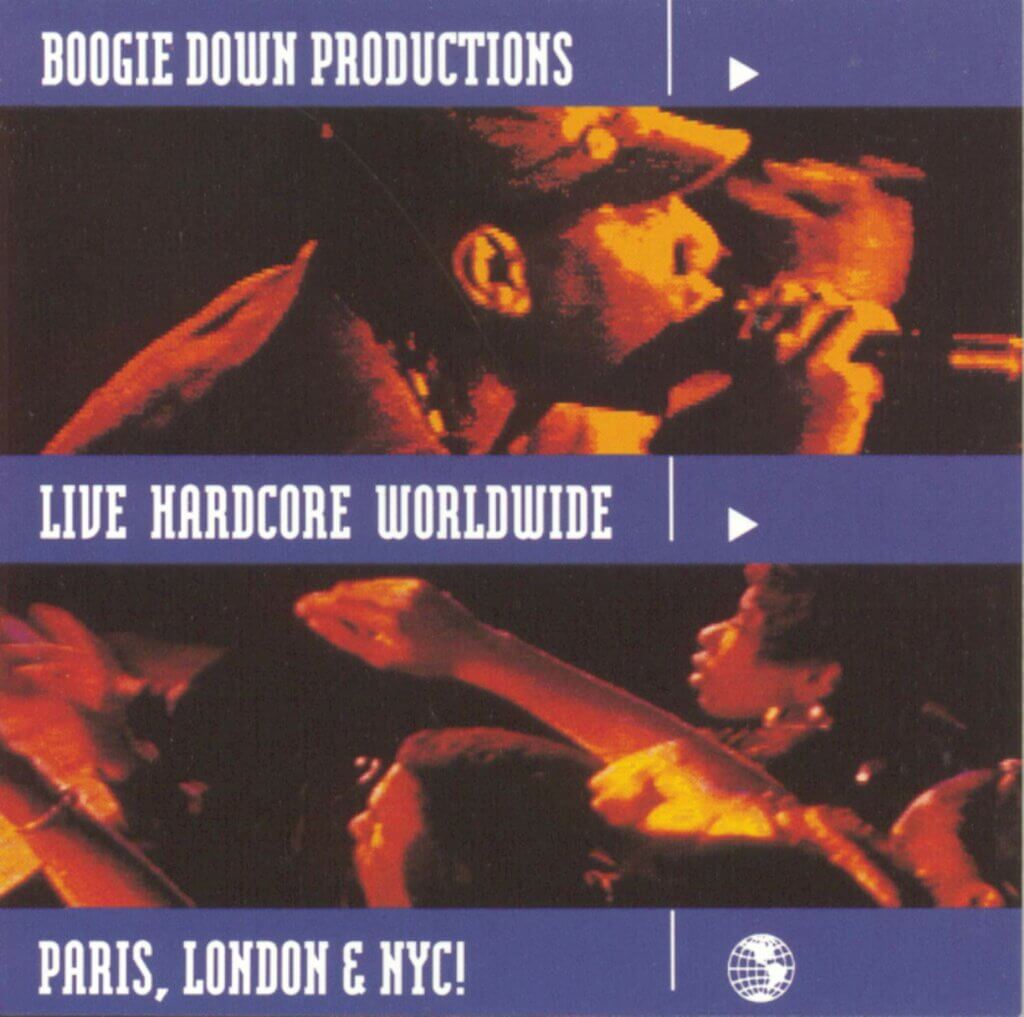
Live Hardcore Worldwide (1991) (Jive Records)
Boogie Down Productions have a well-known reputation for giving one of the best live shows in Hip Hop. Live Hardcore Worldwide (1991) includes performances of some of their greatest hits (at that point of their career) such as “My Philosophy”, “South Bronx”, “Criminal Minded” and several others. The album features excerpts from live shows in the mecca of Hip Hop; New York City, as well as spirited live renditions of their stellar work across the pond in London and in Paris, France.
If you want to know what real live Hip Hop sounds like — listen to this album. Of course, if you want to experience how it actually feels like — you have to go to a live show. And from all accounts I’ve ever heard (unfortunately, I have never seen them perform live) — KRS-One and the BDP crew delivers the kind of live Hip Hop experience fans swear you’ll never forget.
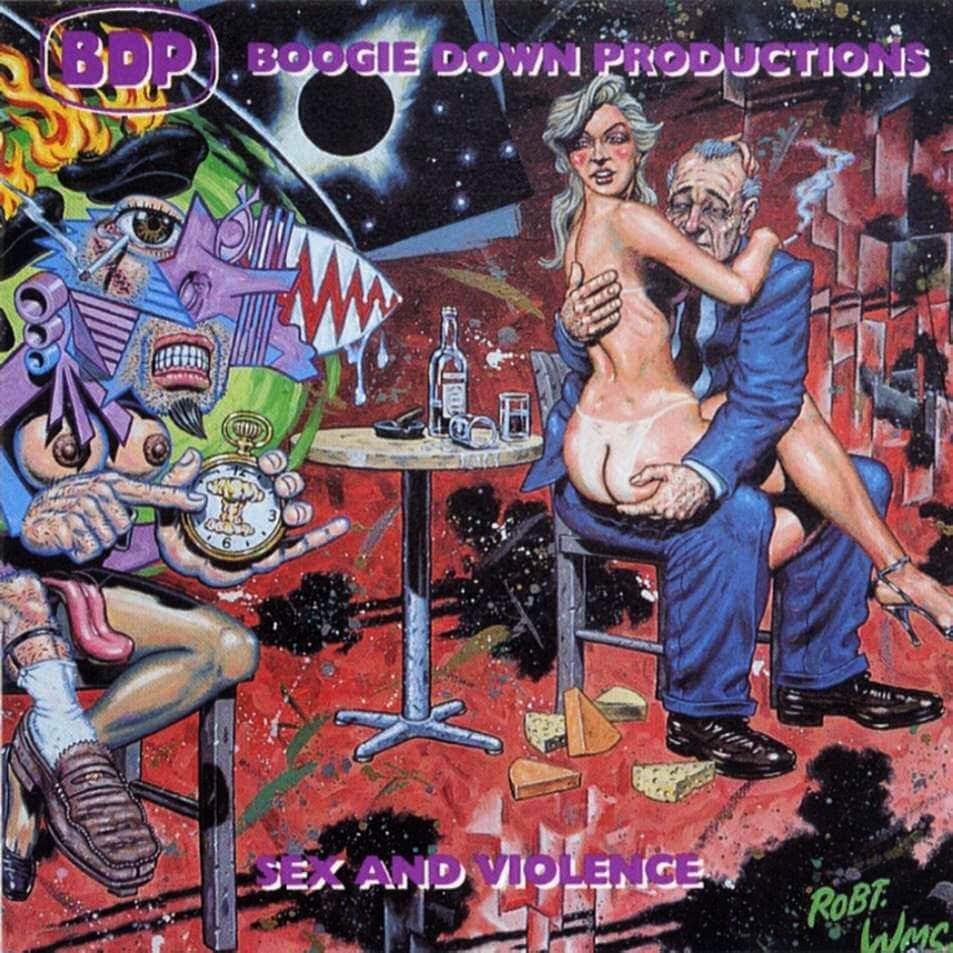
Sex And Violence (1992) (Jive Records)
I think Sex and Violence (1992) is the weakest project of Boogie Down Productions’ first five studio albums. That doesn’t mean I think the project was ‘weak’ — it was far from being an uninspiring pedestrian effort. KRS-One was still at his peak (or as he would say, “Still #1”) — and the insightfulness of his lyricism was still of the highest quality (and quantity).
Look at it this way: the athlete who comes in 5th place in an Olympic weightlifting competition is still one of the strongest dudes in the world! Characterizing “Sex and Violence” as the weakest album shows just how strong the previous releases were.
“Duck Down”
The Sex and Violence album goes in multiple directions; Kris covers a lot of ground on this project regarding the ills of society. With that said, I have to post an excerpt from the song lyrics of one of the more ‘straight-up’ hip-hop records on the album.
“I’ma, rhymer, with a tim-er attack/To your mind/A reminder of what kind of headliner/You’ll see, when you come to the show/BlastMaster KRS-One, Leo — the Lion/Crying MC’s/They be crying/When they sizzle in a big pot grease begging, “Please, please!”/But I’ll be efficient and flexing wisdom cuisine/Then dismiss it as Kris and Kenny/Rocking many/Good and plenty/Any MC tests me, gets done/Lyrically hung/I surgically remove his tongue/Lyrics by KRS-One…” Source: Rap Genius
KRS-One’s “flexing wisdom cuisine” line demonstrates how The Teacha is also a master chef at cooking up metaphors.
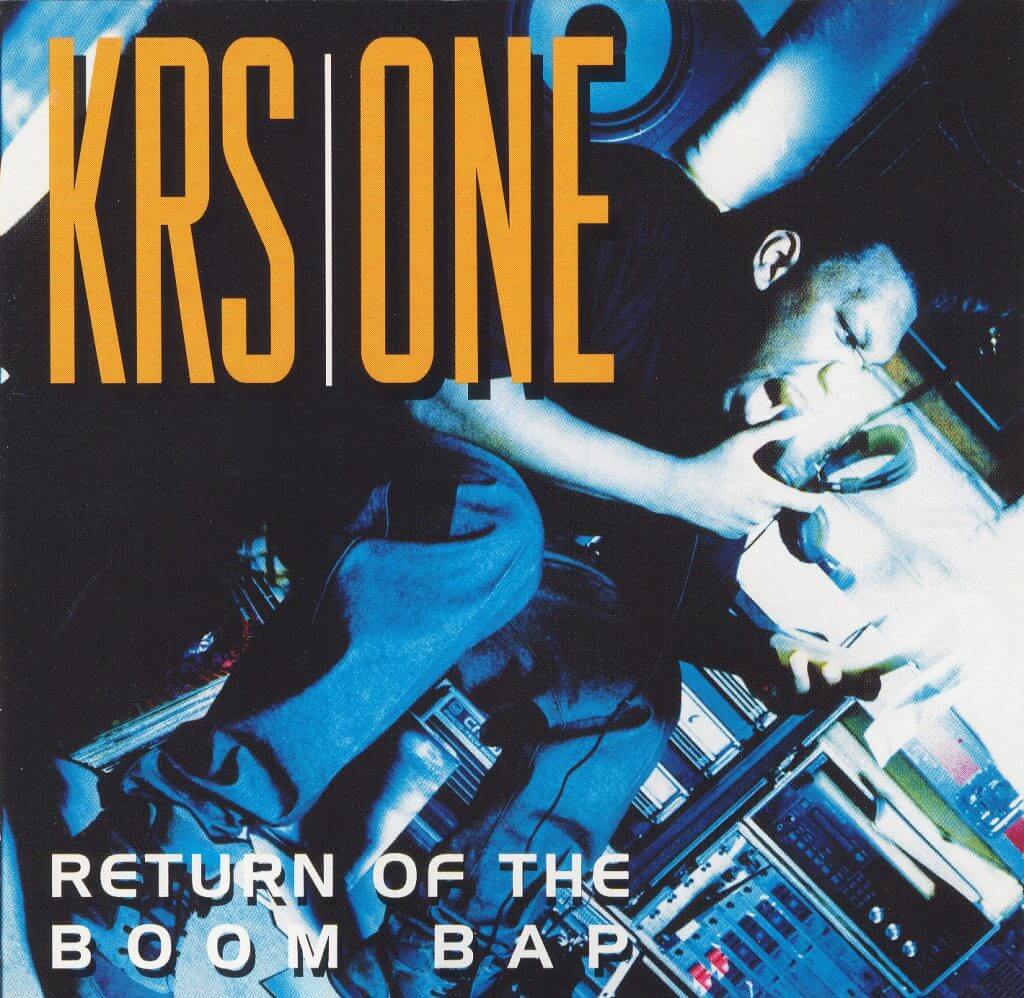
Return of the Boom Bap (1993) (Jive Records)
Ok, so now we’ve reached what I think is the ‘prime’ of KRS-One’s peak. As I stated earlier, KRS and BDP are synonymous; no doubt. But the release of Return of the Boom Bap (1993) marks a somewhat new beginning for KRS-One.
Truthfully, KRS-One, as part of Boogie Down Productions, was like the member of a talented R&B quintet who sung ALL of the lead vocals (this comparison is not at all meant to dismiss the contributions of BDP members — or back-up vocalists in singing groups!). KRS was then — and is now — Boogie Down Productions. And on his solo projects, KRS never traveled on the path to greatness alone. The BDP crew (including the spirit of DJ Scott La Rock) has always been by his side.
Kris made three consecutive classic Hip Hop albums in the first few years of his solo career; with Return of the Boom Bap being a strong debut. There are very few (hardly any) Lyrical Luminaries who share that distinction. Before I share lyric excerpts from a couple of songs featured on Return of the Boom Bap, allow me to clarify what I just stated regarding KRS-One’s three consecutive classics.
Return of the Boom Bap, his self-titled second album, KRS-One, and I Got Next are all Hip Hop classics. Sure, all three albums reached the Top 3 on Billboard’s rap charts but there were many bigger-selling commercial rap album releases during the 1990s. But there were few authentic Hip Hop albums released after the Golden Age Era ended.
The vast majority of MCs who came onto the Hip Hop scene, post-Golden Age Era, haven’t seemed all that interested in fully representing the core elements and principles of the culture in their artistry. KRS-One was among the few ‘true’ MCs left by the time hip-hop reached the beginning of its second decade!
To be clear: this assertion is less of an indictment on the state of the culture, believe it or not; it’s more about my humble attempt to give KRS-One his proper due for his tireless commitment to being a vessel for authentic Hip Hop.
Here are lyric excerpts from two of the best (and most impactful) songs off Return of the Boom Bap
Sound of da Police
There are some MCs who are brilliant lyricists but shy away from social-political subjects, while there are other MCs who dive all the way into the pool of politics but are sorely lacking in lyrical dexterity. I suppose a simpler way of putting it is that some MCs have style but no substance; and some, vice versa.
KRS-One does not lack in either one of those areas.
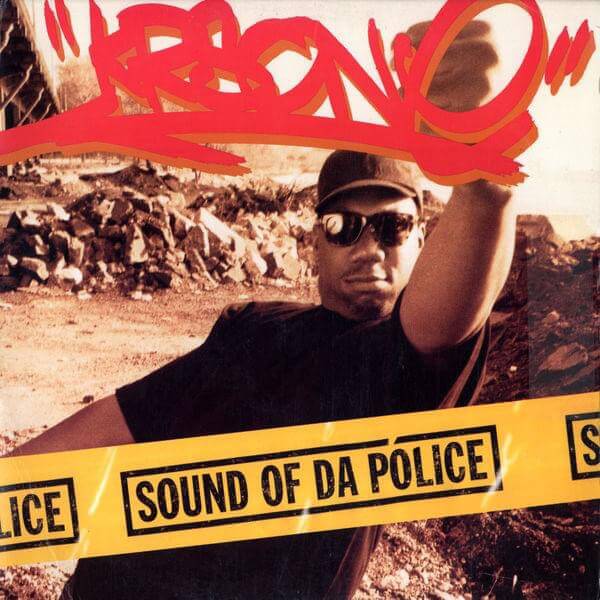
One of the biggest street anthems in the 1990’s.
The Teacha’s verses in “Sound of da Police” is a three-part musical lecture; expository historical context into the origins of the police in the U.S., on-the-ground reporting on the state of police-community relations at the time of the song’s release — AND poetic prophecy predicting the powder keg environment of today.
“Take the word overseer, like a sample/Repeat it very quickly in a crew, for example/Overseer, overseer, overseer, overseer/Officer, officer, officer, officer/Yeah, officer from overseer/You need a little clarity? Check the similarity!/The overseer rode around the plantation/The officer is off, patrolling all the nation/The overseer could stop you, “What you’re doing?”/The officer will pull you over just when he’s pursuing/The overseer had the right to get ill/And if you fought back, the overseer had the right to kill/The officer has the right to arrest/And if you fight back they put a hole in your chest…” Source: Rap Genius
These flesh-piercing lyrics provide needed insight into the sordid history of police violence and brutality toward black people. It is NOT a shocking new phenomenon by any means.
“Black Cop”
Since we’re discussing the tension between the police and black & brown communities, I have to include some lyrics from this song because it’s highly correlated to the issues Kris addressed in “Sound of da Police”. In “Black Cop”, KRS-One gives a searing rebuke aimed at black police officers with whom he feels are used as exploitative tools to further the unconscionable — and sadly — self-destruction of black people; not just in America but all around the world.
“Hardcore kids in the West got stress/In the East we are chased by the same black beast/The black cop is the only real obstacle/Black slave turned black cop is not logical/But very psychological/ Haven’t you heard?/It’s the BLACK COP killing black kids in Johannesburg/Whassup black cop, yo, whassup?!/Your authorization says shoot your nation/You wanna uphold the law/What could you do to me?/The same law dissed the whole black community/You can’t play both sides of the fence/1993, mad kids are getting tense…” Source: Rap Genius
“Outta Here”
By the early 1990s, several top-flight MCs were nosediving— or had already crashed and burned. It’s really just the nature of the beast that’s Hip Hop. MCs that were HOT in the early ’80s had disappeared by the end of that decade. KRS-One details the typical rise-and-fall narrative of even the best MCs and looks back on BDP’s own pursuit of rap supremacy in the DJ Premier-produced “Outta Here”.
But Kris also gives popular MCs of that time; the 90’s (as well as the up-and-coming ones), a wise warning (similar to the cautionary tale he shared with wanna-bee hustlers in “Love’s Gonna Get’cha”): superior status and surefire stability in Hip Hop is almost guaranteed to be short-lived.
“Hip-hop pioneers we didn’t ask to be/But right then hip-hop changed drastically/People didn’t wanna hear the old rap sound/We started sampling beats by James Brown/In the middle of doing “My Philosophy”/Scott was killed and that s*** got to me/But knowing the laws of life and death/I knew his breath, was one with my breath…
…I had nothing left and it was scary/So I dropped By All Means Necessary/Another hip-hop group that was a friend of me/Was a revolution crew called Public Enemy/It Takes A Nation of Millions to Hold Us Back/These two albums set off consciousness in rap/But all along, I’m still looking around/And all I can see are these rap groups falling down…” Source: Rap Genius
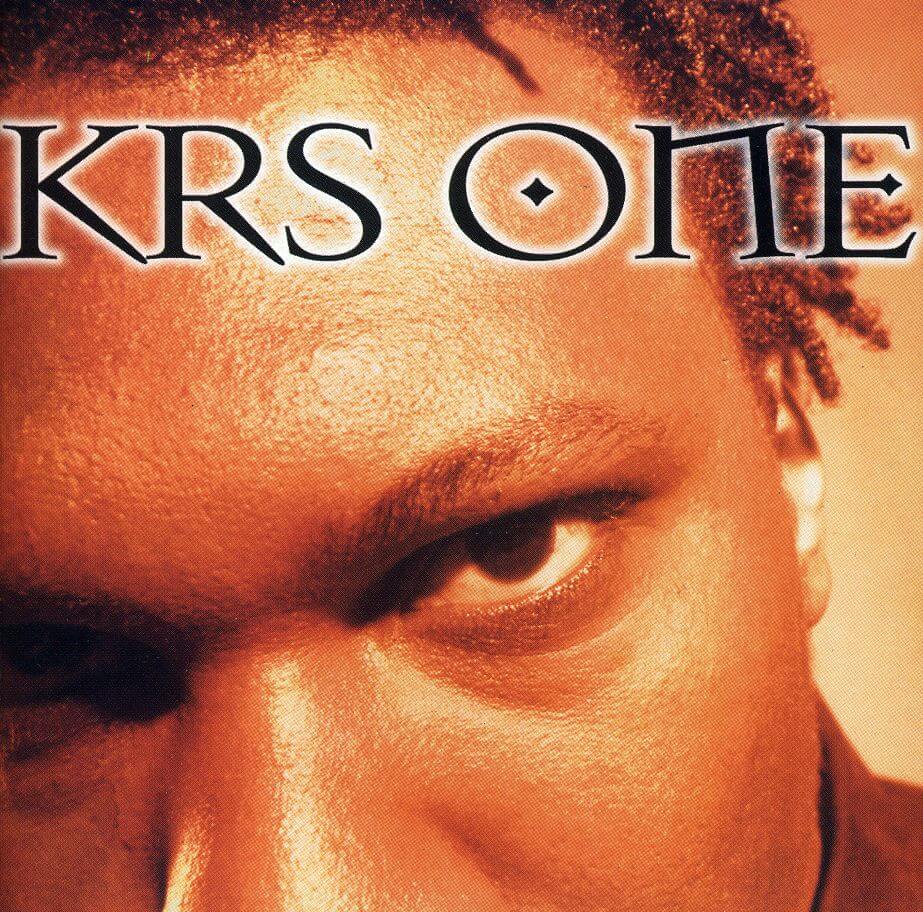
KRS-One (1995) (Jive Records)
Remarkably, Kris’s lyricism only got better at the midpoint of the ’90s as his solo career generated momentum with the release of his second offering: KRS-One (1995). This self-titled album is a sturdy bridge between KRS’s solo debut, Return of the Boom Bap, and his third solo effort, I Got Next. But make no mistake — this album was not simply intermission music until fans reached the hip-hop utopia that is I Got Next. By its own merit, the construction of KRS-One’s self-titled album is an architectural Hip Hop marvel.
Here are a few lyrical highlights from this outstanding offering.
“MCs Act Like They Don’t Know”
Another ‘banger’ produced by DJ Premier, “MCs Act Like They Don’t Know” featured KRS-One in familiar (and completely comfortable) territory; beating overmatched MCs into submission on Hip Hop’s battlefield.
“If you don’t know me by now I doubt you’ll ever know me/I never won a Grammy/I won’t win a Tony/But I’m not the only MC keeping it real/When I grab the mic to smash a rapper, girls go, “Ill”/Check the time as I rhyme, it’s 1995/Whenever I arrive the party gets liver/Flow with the master rhymer, as I leave behind/The video rapper, you know, the chart climber…
…Clapper, down goes another rapper/Onto another matter, punch up the data/Blastmaster/Knowledge Reigns Supreme Over Nearly Everybody/Call up KRS/I’m guaranteed to rip a party…” Source: Rap Genius
KRS-One’s lyrics are squarely aimed at those rappers who believe that chasing fame, obtaining fortune, and collecting accolades make them great MCs. The lyrical performance on this song is KRS-One at his best. His forceful impact is impossible for rappers or other MCs to withstand when his battling, teaching, and politicking skills reach their optimum — all at the same time.
Who needs a Grammy or a Tony award, anyway, when you’re a Lyrical Luminary??
“Ah-Yeah”
KRS-One spits highly potent venom on this racially-charged record. His unrelenting attack is one of the hardest lyrical performances I’ve ever heard; it’s stunning in its vicious veracity. Critics of the song become ‘painfully’ aware from the contagious chorus that kicks off the chorus — the truth hurts.
Fans can hear Kris’s ideology constantly being shaped and refined — from the Criminal Minded days — to the release of this sophomore solo project. But the meaning of KRS’s name has never changed — Knowledge Reigns Supreme Over Nearly Everyone — therefore, the culture always gave KRS the mandate to speak — with authority — the unforgiving truth.
“So here I go kicking science in ninety-five/I be illing, parental discretion is advised still/Don’t call me n****, this MC goes for his/Call me God, cause that’s what the black man is/Roaming through the forest as the hardest lyrical artist/Black women: you are not a b**** you’re a Goddess/Let it be known, you can lean on KRS-One/Like a wall cause I’m hard/I represent God…” Source: Rap Genius
This record absolutely deserves another posted excerpt from its lyrics. KRS kicks some of his most profound lyrics on the song’s second verse.
“This is not the first time I came to the planet/But every time I come, only a few could understand it/I came as Isis, my words they tried to ban it/I came as Moses, they couldn’t follow my Commandments/I came as Solomon, to a people that was lost/I came as Jesus, but they nailed me to a cross/I came as Harriet Tubman/I put the truth to Sojourner/Other times, I had to come as Nat Turner/They tried to burn me, lynch me and starve me/So I had to come back as Marcus Garvey/Bob Marley/They tried to harm me/I used to be Malcolm X/Now I’m on the planet as the one called KRS…” Source: Rap Genius
The above excerpt speaks for itself. No further assessment from ‘little ol’ me is needed. The only thing I will say about these lyrics— READ THEM AGAIN!
Wow.
KRS-One’s self-titled album may have been just his second solo effort, but in 1995 — at the time of its release — Kris was like a fearless, aging Hall-of-Famer still putting up MVP-type numbers (with ease) in a star-studded league. To continue the basketball analogy: when KRS-One released his third solo effort, I Got Next, in 1997 — an argument could be made that he became the culture’s world-famous logo.
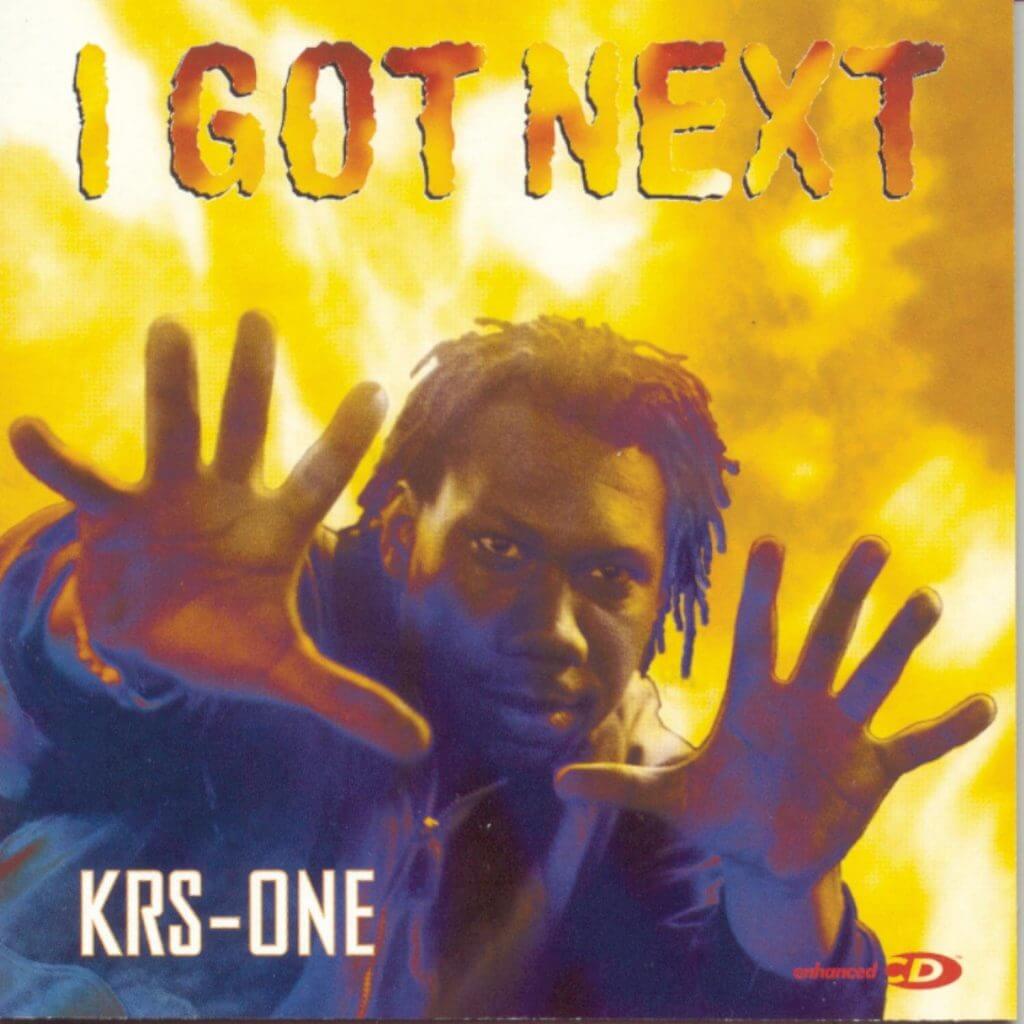
I Got Next (1997) (Jive Records)
I Got Next (1997) is a special album. Yes, it’s the biggest album of KRS-One’s career in terms of sales; and it’s a highly-critically acclaimed project. But while those are nice statements to highlight on KRS-One’s Wikipedia page, what I bet matters most to KRS — is the love and respect he receives directly from Hip Hop’s most important constituency — the streets.
The loyalty the streets have shown KRS-One has always been reciprocated by The Blastmaster. KRS-One’s devotion to the culture is immeasurable and incomparable; and he has demonstrated that loyalty by consistently using every bit of himself to produce the best hip-hop possible.
Hip Hop culture was in a very different place in 1997 from the state it was in back in 1987 when BDP’s classic debut, Criminal Minded was released. The most glaring difference is the state of shock (and chaos) the culture found itself in due to the aftermath of the east coast/west coast conflict. But that was far from the only difference.
By the late 1990s, Hip Hop had wandered off from its righteous path like a runaway child; much of its core principles that were responsible for elevating the culture to prominence had eroded to a significant degree. The overall climate of Hip Hop had changed drastically — like below-freezing Arizona mornings in June.
Yet, ten years after Criminal Minded, KRS-One (and the BDP movement) was still a force to be reckoned with in Hip Hop, which is remarkable considering just how much the culture had shifted, along with the fact that most MCs from his generation had vanished, fell-off or barely hanging on as disappointing shells of themselves.
When I Got Next was released in late spring of 1997, KRS-One was still moving strong like a classic muscle car going into a higher gear.
I Got Next is Hip Hop personified. The album sent a message to Hip Hop’s core fans — it gave reassurance that in spite of its shallow breathing and weakened pulse, KRS-One was the righteous resuscitator dedicated to keeping the heart of the culture pumping, and its soul alive.
The title of the project is a not-so-subtle implication of KRS-One’s mindset at the time of its release. Kris was making a definitive statement. When it came to representing ‘real’ Hip Hop — he was not going anywhere, in fact, the timespan of his MC reign was past, present, and future — with no gaps.
With all this talk of MC rule, this seems like an appropriate time to highlight some of the album’s most dominating lyrics.
“The MC”
The message conveyed in the contents of this song was a critical part of the inspiration that led me to begin working on the Lyrical Luminary series. The song is NOT the rant of a run-of-the-mill rapper. The song is the manifesto of a ‘real’ MC; a Lyrical Luminary, whose number of years devoted toward perfecting his craft are greater than the average age of most of the culture’s young fickle fans.
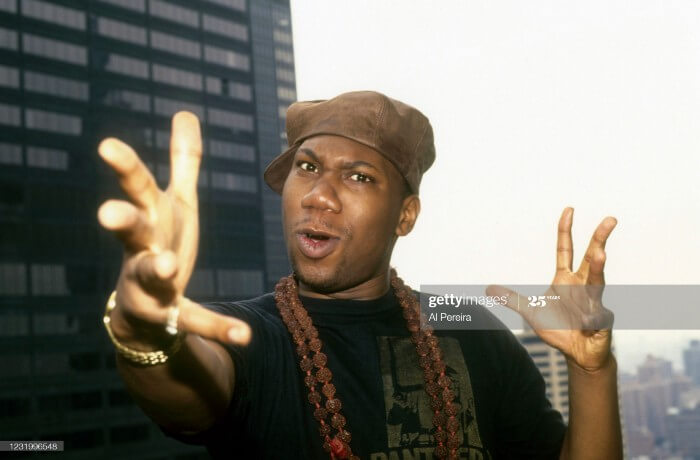
KRS-One: The MC.
KRS-One certainly had earned more than enough credibility to speak authoritatively on the rigorous rules of emceeing. Kris flowed poetically on one single verse with decisive command.
“THE MC/La-di da-di/I don’t wear Versace/I wear DJ’s out quickly at the party/Who am I?/If you’re like me, hip-hop is in your body/Who am I?/THE MC/When the jam is slow and you need a proceed-er/Who am I? /THE MC/
…When you need a lyrical leader with oratorical triple features/Who am I?/ THE MC/When you need to rock your 3000-seat arena, best believe, uh/Who am I?/THE MC/When you need to get the word on the street with demeanor/Who am I?/THE MC…
…I beg thee, let me splurt rhymes, I have plenty/Who am I?/THE MC/Lord have mercy/I hit sudden like Percy/Always New, like Jersey/Stay thirsty/Who am I?/THE MC/Showing my authority/Superiority/An artistic minority/Now you starting me/Cause party philosophy can only be carried out by/Who am I?/THE MC/No doubt/Predicting far ahead what will set the party off immensely/With plenty of who?/THE MC…” Source: Rap Genius
One of the many gems in this verse is when KRS states that his “authority” and “superiority” is what makes him “an artistic minority”. I completely concur.
“The MC” is a legendary performance — by a Legend. Considering the overwhelming menu of Hip Hop; even the ‘healthiest’ entrees fail to provide greater nutritional value than what KRS-One served fans on “The MC”.
“Step Into a World (Rapture’s Delight)”
The experience I had when I first heard “Step Into a World” closely resembled the joy (or should I say, “delight”) I felt the first time I heard “My Philosophy”. Both records — in hypnotic-like fashion; from their beats to Kris’s rhymes, bring the listener closer and closer to the true essence of how Hip Hop is supposed to sound.
Listening to “My Philosophy” (in 1988) or “Step Into a World” (in 1997) had the same effect on overly ambitious ears like mine: KRS-One’s lyrical performances motivated many to try their hand at emceeing even if they were completely inept on constructing a ‘rewind-that-back’ type of rhyme.
I can recall at the time of its release, feeling like “Step Into a World” was a Top 10 Hip Hop record of the late 1990s, which is saying something — as I think back to some of the MCs (including a few Lyrical Luminaries) who were operating at the top of their game at the time.
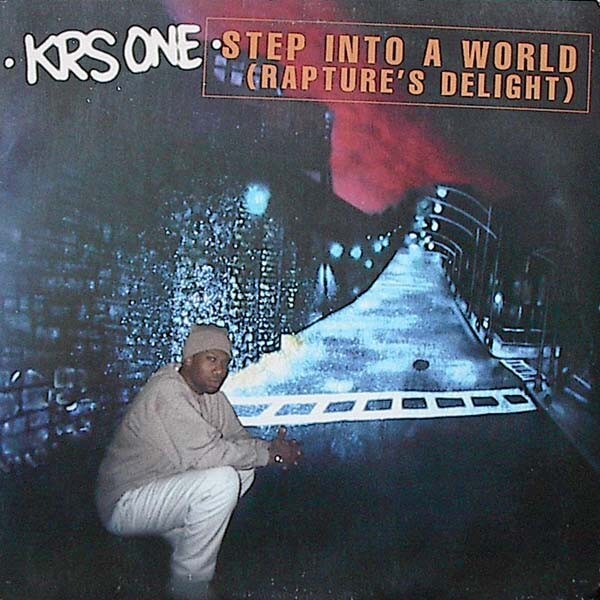
Step into KRS-One’s World.
“I’m bout to hit you with that traditional style of cold rocking/Giving options for head knocking/Non-stopping/Tip-topping/Lyrics, we dropping/But styles can be forgotten/So we bring back the raw hip-hopping/Just like the records and tapes you be copping/Cop some breakdancing, boogie popping, and locking/Tic tocking/Guaranteed to have you clocking/We only get better/And only better we have gotten/This type of flow don’t even think about stopping/Beware/The length of the rhyme flow can be shocking…” Source: Rap Genius
I’m struck by the line in which KRS declares that he and his BDP crew have only gotten better at this thing called Hip Hop, for a couple of reasons. First, in the rhyme, he used the pronoun “we”, which showed how Kris viewed BDP as a movement that still played a critical role in his career. Second, it’s just a really clever line! And he follows it up nicely by warning other MCs against trying to halt his special delivery.
KRS-One was consistently on top of his lyrical game throughout his career. Kris was a great MC, before and after his peak, but I believe he was at his VERY best during this 7-year stretch in the 1990s.
How was KRS able to extend his peak?
I think it was The Teacha’s obsessive-like focus on mastering the art of emceeing; and the overall devotion he invested toward elevating and advancing the culture, that explains his peak longevity. KRS-One simply refused to make less-than-the-best; and core Hip Hop fans appreciated it and were much better served because of his dedication.
Nevertheless, some of the same values, principles and strong convictions KRS-One has proudly held, contributed to his gradual decline.
The Decline
The opposing forces that led to KRS-One’s decline.
So, allow me to pose the question: Did KRS-One’s career fall into decline? Yes…and no.
First, let me explain the ‘no’ part of my answer.
While other MCs from his era fell into decline — or fell off, KRS-One continued to make good Hip Hop as the world entered the new millennium (2000’s). Therefore, KRS-One’s career can be equally described with two words: “activity” and “longevity”.
It’s common to hear MCs speak — unconvincingly — about “being in the studio”. Of course, being in the studio doesn’t mean you’re producing the kind of ‘dopeness’ that’s ready to be widely distributed on the streets. KRS-One is never just ‘in the studio’ — he’s on the stage, in the lecture halls, and in the streets. What he produces in the lab gets unleashed onto the streets, specifically targeting those core Hip Hop fans who actually welcome the ‘infection’.
KRS-One has stayed very busy since the end of his peak; after I Got Next, KRS released well over 10 more solo albums, about 5 collaboration projects, at least — another BDP album; and who knows how many mixtapes and guest features he’s done since over the last 20+ years. The Blastmaster has been active for over three decades since he and BDP battled the Juice Crew in the late 1980s.
That’s why declaring that KRS’s career fell into decline is a tough argument to make, considering his constant contributions to the culture. Many MCs came and went. Several rappers and entertainers who became superstars blew up — and then were eventually blown off — the Hip Hop map. Yet, KRS-One’s brand of Hip Hop has remained a must-see (and hear) destination for all of the culture’s travelers.
Because of his devotion to his craft, KRS-One gives the streets solid Hip Hop with every release. Lyrically, he never really lost a step. While it’s true, the following lyrics are almost 20 years old, check out his piercing rhyme attack on “Hot”, featured on his fourth solo album The Sneak Attack (2001).
I’ll challenge anyone to put up bars by another MC — that’s hotter than these scorching burners.
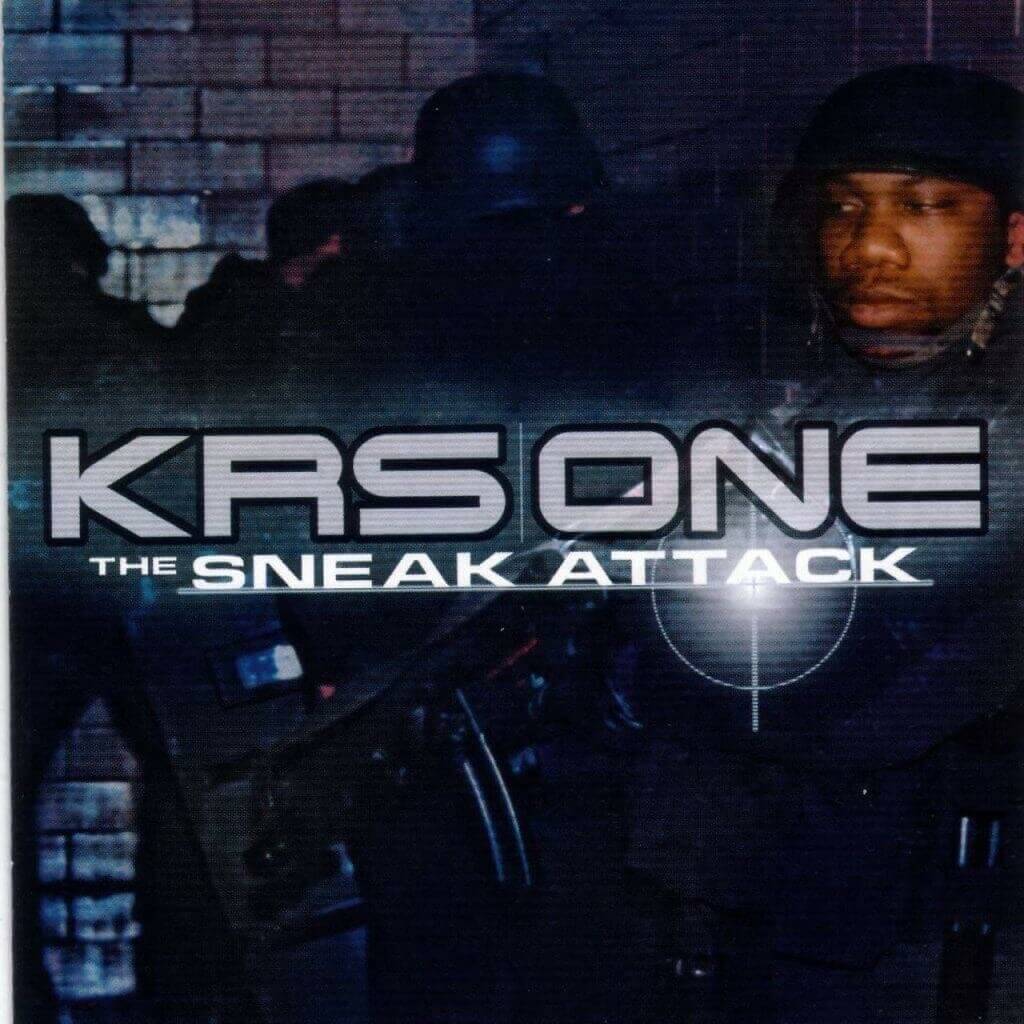
The Sneak Attack (2001) (Koch Records)
“Who really got these streets on lock?/Whose name really holds high respect on the block?/Who opened up these clubs and taught you how to mix?/Who opened up these thugs from Compton to the Bricks?/I don’t even sound like the rest of you kiddies/I study the ways of God/You studying titties/And a**/I pity your class/Cause you come out with a blast/But you’re trash/So you really don’t last…” Source: Rap Genius
Ok, now let me address the “yes” part of my answer on why I think KRS-One’s career fell into decline.
Much of my reasoning actually stems from the kind of critical lyricism he slung at MCs and rappers on “Hot”. The same lyrical fire KRS-One was known for starting could become so explosive that sometimes even he got burned!
KRS-One’s devotion to the culture has never lost its strength, but the interpretation of the culture by younger generations has drastically changed the face of the culture like a Beverly Hills plastic surgeon. Some Hip Hop purists may say that the cultural makeover has resulted in an unfixable ‘butcher job’!
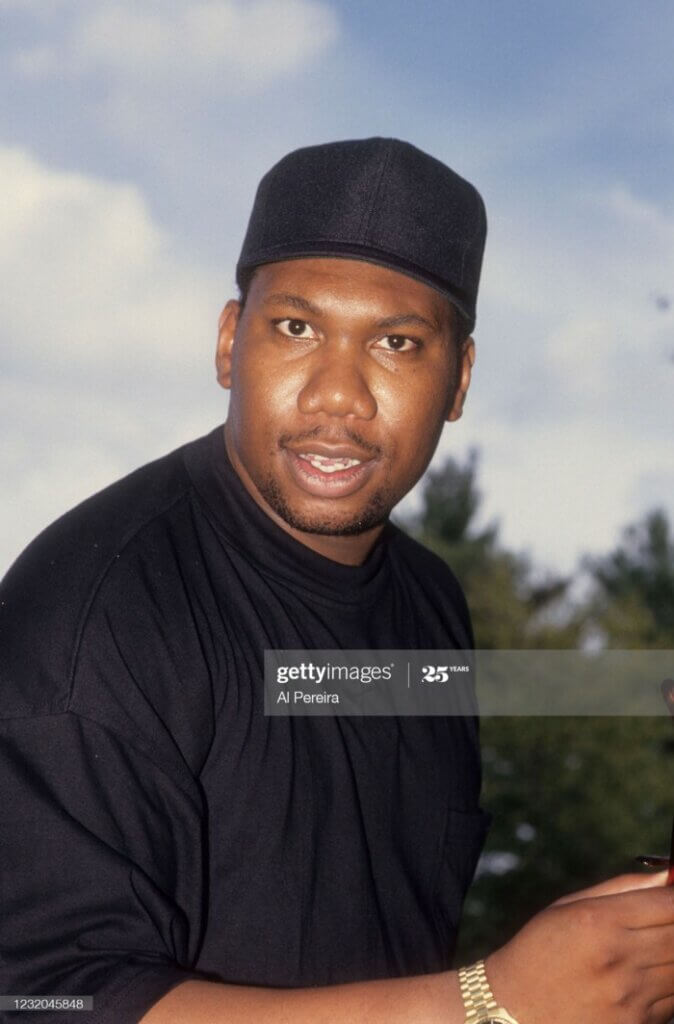
KRS-One has stayed HOT in his career.
But regardless of what you think, it’s undeniable that Hip Hop’s transformation has only gotten more and more dramatic over the years. The culture underwent gentrification a long time and ago and it seems like there’s no turning back. The Teacha is still living in its hood; giving spirited street-corner lectures. But much of KRS’s core group of students have left Hip Hop’s hood in search of ‘greener pastures’ — while younger (and newer) folks are nearly oblivious to The Teacha’s words of wisdom as they hurriedly walk passed.
Inside and outside forces have worked together — unintentionally— to bring about KRS-One’s gradual decline. The BDP movement has weakened a bit over time, partly due to Kris’s uncompromising ideology about the culture (which sometimes come across as self-righteous), and partly due to younger generations’ addictive attraction to ‘glittery’ ‘fake’ Hip Hop — deliberately disguised as gold.
While I’m personally fond of KRS-One’s inclination to ‘teach’, I can see how his firm idealistic approach to his artistry can be perceived as condescending and preachy — and even a little hypocritical. For example, he has seemed too heavily invested in the ‘culture vs capitalism’ debate in Hip Hop; a case that’s been fully litigated in the court of public opinion. Judgment: Capitalism won.
I can also understand why his unyielding condemnation of the styles, lyrics, imagery, and overall mindset of the MCs of yesteryear and today, has made Kris seem ‘old’ and out-of-touch with the ‘not-so-new-anymore’ realities of the culture. Kris’s maturation as an artist, and the normal aging we all experience, has essentially worked against him within a capricious culture whose only constant is the fickleness of its youth.
Some may say that KRS is a self-appointed gatekeeper of the culture; a role that NO ONE in Hip Hop should solely hold. His lyrical lectures (meaning: his music) and insightful interviews on the state of the culture is real Hip Hop to my ears; but to some, it may often sound like the pessimistic rants of an elder statesman longing to relive the ol’ glory days.
No matter how you slice it — much of what has constituted as Hip Hop for over the past 20 years after The Blastmaster’s peak — has trended in the opposite direction of KRS-One’s musical palette. But it’s not surprising at all; artistic differences and generational gaps should be completely expected within a culture that is so youth-driven.
Another contributing factor to KRS-One’s decline is the emergence throughout the years of younger rappers and MCs with fresher looks and sounds that enthrall younger audiences with sensationalized stories of hardened street life, and fantasized tales of the lifestyles of urban kings and queens.
KRS-One used to expose, attack, and destroy these so-called ‘kings’ (we called, ‘Sucka MCs’ back in the day) with ease. Well, he hasn’t stopped doing that — but these ‘kings’ (and ‘queens’) still end up ‘ruling’ with impunity, nevertheless, because far too many of us have been sold so much of that shiny glitter — that we’re too blind to recognize real gold.
Even though a sizable portion of the culture long-ago abandoned its core, KRS-One’s heart and soul have remained strong, notwithstanding. Kris has continued his impressive track record of mind-blowing lyrical performances. He’s the same Lyrical Luminary today as he was when Criminal Minded dropped in 1987. Any sort of decline KRS-One’s career has gone through has NEVER been due to lyrical mediocrity.
The Impact
How KRS-One’s hardcore consciousness has had a tremendous influence on other great MCs.
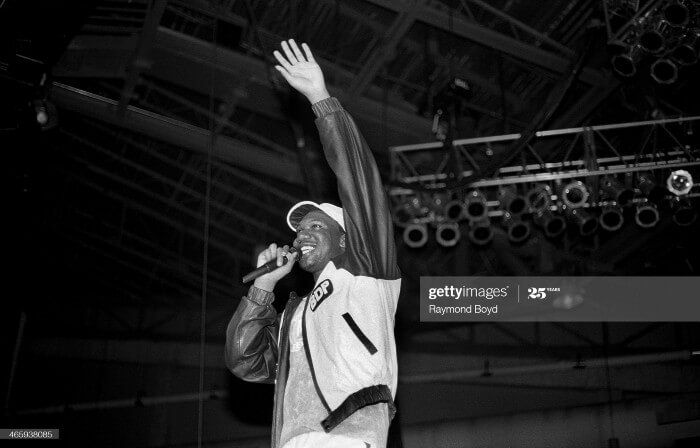
KRS-One’s level of impact on Hip Hop is immeasurable.
Though he was one of the fiercest competitors of his time, KRS-One is well-regarded among the DJs, b-boys, graffiti writers, beatboxers, and MCs who collectively co-built Hip Hop culture with him, dating back to the early ’80s. Hip-Hoppers that came onto the scene during and after his peak have no choice but acknowledge the force of nature-like impact his artistry has had on the culture.
KRS-One is revered throughout all corners of the Hip Hop world — figuratively and literally. His strong impact on the culture cannot be denied or rejected with any shred of credibility. Led by KRS, Boogie Down Productions spearheaded the power of ‘the crew’ and laid out the often imitated but never duplicated model on how to turn a bond of brother-and-sisterhood into a cultural global movement. And that BDP movement is still going strong worldwide.
As Kris stated in one of his many rhymes, BDP (along with groups like Public Enemy) built revolutionary movements that stressed social awareness to Hip Hop culture. Diversity was the culture’s most valuable (and leveraged) asset during its Golden Age. A variety of styles thrived, but KRS-One co-lead conscious Hip Hop, which was the culture’s juggernaut during the storied era.
Kris and BDP basically created a highly-infectious subgenre within the subgenre of conscious rap itself: ‘hardcore consciousness’ — it was more professorial than PE’s militant approach but equally confrontational in nature. Through this style, KRS-One and BDP expanded Hip Hop’s audience and made it more accessible beyond the streets.
Just like their militant brethren; KRS-One and BDP didn’t just bring consciousness to Hip Hop — they brought Hip Hop to the world. BDP cemented a worldwide reputation for giving stellar live performances; whether they’re rocking a New York City block party; or moving the crowd at a packed club in London or Paris.
KRS-One’s wide-ranging artistry has been well received by a multitude of audiences because his lyricism covers a wide range of disciplines; his rhymes are cultural, intellectual, political, spiritual, historical, metaphysical, and scientific. Hip Hop heads can connect with his lyrics while partying in a crowded Bronx nightclub or debating his ‘philosophy’ during a standing-room-only lecture at Columbia University.
All of the qualities that comprise KRS-One’s artistry have greatly influenced MCs from a variety of styles and sensibilities. The most vulgar or most ‘gangsta’ MC can feel comfortable addressing worthy issues in their rhymes because of the path KRS-One paved. The Blastmaster showed that penning rhymes of substance is equally important to having show-stopping style.
Inspiring MCs to embrace social consciousness without compromising lyrical excellence is his greatest contribution to Hip Hop. Many MCs are willing to speak truth to power AND speak [with] power — to the people, because of the impact KRS-One had on them personally; raising their own state of consciousness to unforeseen heights.
KRS-One has been instrumental in producing thinkers, readers, and writers across Hip Hop generations; on stages, in the crowds, in the schools, and in the streets.
In fact, as I stated earlier, it was KRS-One’s style that helped increase my own appetite for knowledge; which I still feed regularly through avid reading and studying. His influence on my writings stretched well beyond the popularity of just two or three of his most popular songs. I’ve been told by relatives, friends, preachers, and teachers that I have a gift for writing; their encouragement is surely appreciated. But the lyricism of KRS-One (and other Lyrical Luminaries) has been a key motivating force in pushing me to actually sit down and work on my pen game.
I can imagine that KRS-One has motivated a countless number of writers besides myself; from cultural commentators and best-selling novelists to Hip Hop’s greatest MCs.
‘Classic-ready’ Hip Hop continued to be produced by other MCs (though few-and-far-between) in the immediate years following the end of KRS-One’s peak, right up to the present day. The Golden Age is certainly not the only era to give birth to the culture’s Lyrical Luminaries. Hopefully, I’ll get a chance to dive deep into the careers of several of these Lyrical Luminaries in the coming months.
But one thing I feel confident in saying — just about every great MC, has in some way, been inspired and influenced by The Blastmaster, KRS-One.
The Legacy
How KRS-One’s legendary career should forever be remembered in the history of Hip Hop.
First of all, I feel comfortable stating that as long as God keeps blessing him with mental sharpness, the story of KRS-One’s remarkable career won’t end anytime soon, in fact, it’s a fascinating page-turner that’s best written — by him. I can guarantee that if I ask KRS if he and BDP have anything left in the tank, he would tell me, what he told all of us at the end of the music video of “You Must Learn”
“We’re NOT done!
We’re NOT done!
We’re NOT done!”
Yet, we can still take a look at the scope of KRS-One’s career, thus far, to assess how the impact of his artistry should be viewed in Hip Hop history.
Let’s start by highlighting his most popular title. Lawrence “Kris” Parker a.k.a. KRS-One, is The Teacha of Hip Hop. His professorial approach to emceeing has not worked nearly as well for most who have tried to copy it. KRS-One is an originator and ultimate master of that ‘hardcore consciousness’ style. Kris has never diluted any parts of his lyrical brew. He gives you Hip Hop unfiltered the way it’s supposed to be served — piping HOT!!!
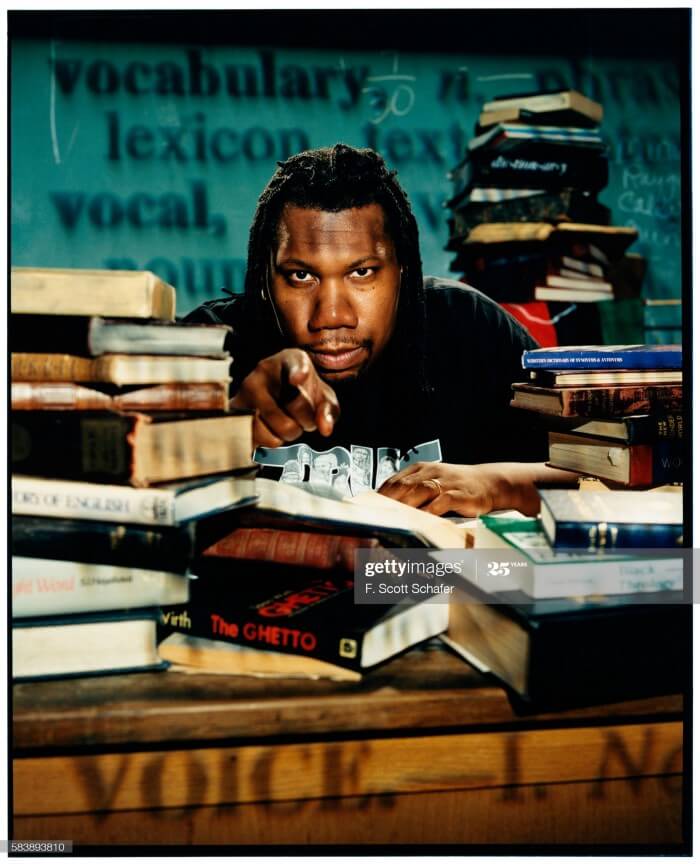
KRS-One is student and teacher.
I think it’s important to point out that KRS-One was an excellent student — FIRST — before he became The Teacha. The best teachers are totally devoted to their own focused study before they can effectively teach the masses. KRS-One is a student of various disciplines, but his specialty is Hip Hop — the dynamic field of study that has taken him all over the globe.
Kris ‘stubbornly’ imparts his knowledge of the culture — which he has obtained from life experience and ‘street’ scholarship — to a cross-generational audience who frequently need history lessons due to their ‘prisoner-of-the-moment’ state of mind.
Check out some of his retrospective lyrics on “Hip-Hop Knowledge” (featured on 2001’s The Sneak Attack album), which is an incredibly detailed timeline of the history of hip-hop — and the role he played in its development.
“So, in 1988/There was no debate, we had to end the hate/The name of the game was “Stop the Violence”/And unity, knowledge, and self-reliance/We started talking ‘bout Martin and Malcolm/Had these ghetto kids going, “Huh, what about him?”/1989, Professor Griff speaks his mind/But his freedom of speech is declined…
…1990, came with the West coast/East coast, West coast/Who is the best coast?/Looking back now, of COURSE it was bogus/The whole argument was where we lost focus/We got hopeless/Not with the lyrics and music/But with hip-hop, and how we used it/Or abused it, you know how the crew get/”You like it cause you choose it…” Source: Rap Genius
Yes, KRS-One might be Hip Hop’s distinguished scholar, but he’s an MC — first and foremost — and that’s what I think most defines his legacy. The song lyrics I shared earlier from “The MC” details KRS-One’s mindset; the words reveal how deeply he thinks about the role of the MC in Hip Hop. So, we can’t discuss KRS’s legacy without highlighting the contribution he made to the growth and development of the sacred art of emceeing.
KRS-One’s obsessive-like devotion to the advancement of Hip Hop must also be highlighted when discussing his legacy. The passion he had for the culture; in the beginning “moment’’ of his career, during his rise, and at his peak — is the same level of passion he has for the culture today. KRS is one of the few true ambassadors of Hip Hop; and he’s arguably the most vocal and most visible on this very shortlist.
The BDP movement still gets PLENTY of love well beyond U.S. borders — in many international cities around the world — whose cultures of Hip Hop have greater authenticity and stronger intensity than the too-often foolish fiasco us Americans try to pass off as Hip Hop today!
Do I sound like I’m on the same soapbox as the one critics sometimes accuse KRS-One of standing on??
But anyway, it’s the music that matters the most and I can say with no hesitation, KRS-One’s edutainment was of the highest quality of music ever produced in Hip Hop. In fact, an argument can be made that his special sauce of ‘education + entertainment’ is the tastiest concoction in all of music.
KRS-One’s proficiency in edutainment (I’m not just talking about the fourth BDP studio album; I’m referring to KRS-One’s signature brand of Hip Hop music, injected with ‘hardcore consciousness’) enabled him to ‘drop science’ on the streets while helping the culture establish credibility well beyond those same blocks. Kris knocked down double-locked doors by making Hip Hop impossible to ignore in the highly guarded worlds of politics, academics, arts, and culture.
KRS-One became a fixture on the university lecture circuit because of his scholarly-grade edutainment. In-depth profiles have been written about him and probing interviews have been conducted with him, digging into every aspect of his philosophy. KRS has been the subject of controversy several times over the years because of his bold views. And of course, he’s been a go-to favorite of the media to speak on the ever-volatile state of Hip Hop.
Even though he’s widely considered to be one of Hip Hop’s greatest MCs, KRS-One has never stopped working on his craft. He always rhymes with the hunger of a #1 contender even though he’s considered an undisputed champion.
Kris epitomizes the essence of the MC in the truest sense; whether battling competitors, or challenging the low-grade consciousness of Hip-Hoppers everywhere. KRS-One was ‘woke’ LONG before it was fashionable to have the word screen printed on t-shirts.
But I can guess the topic you’re waiting on me to finally address.
Is KRS-One the GOAT?
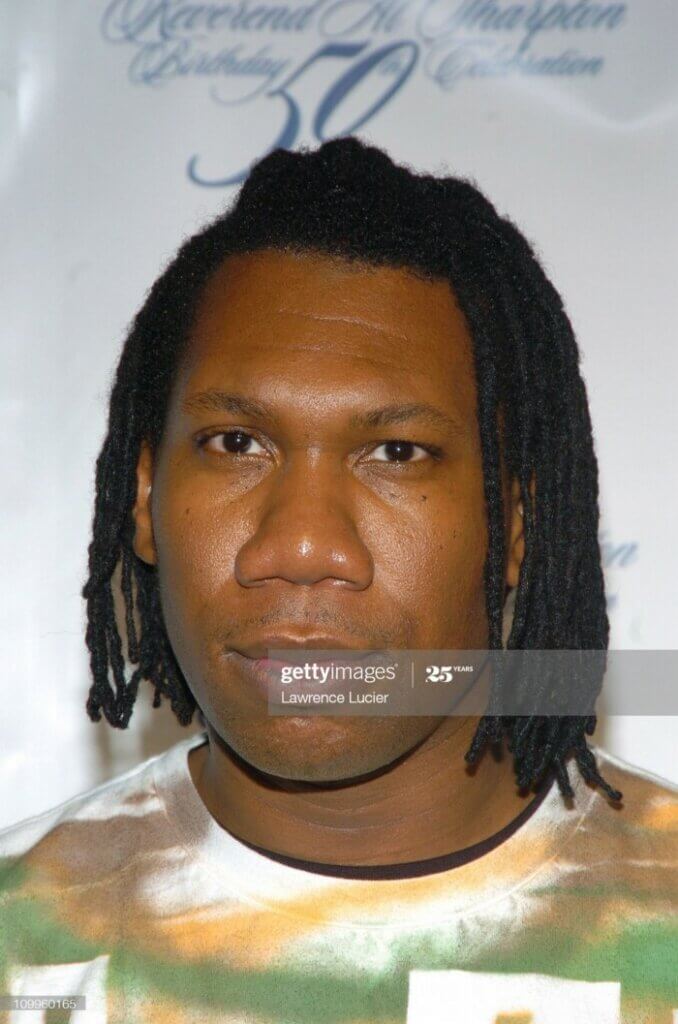
Is KRS-One the GOAT???
Whenever speaking about the art of emceeing, the discussion always comes back to the GOAT debate. This deep-dive essay should be proof that I think KRS-One; is at the very least — one of the best to ever pick up the mic. He’s definitely in my Top 10.
You’re probably thinking right now that I’m avoiding the GOAT question. Well, let me put it this way: after spending days — which ran into nights — revisiting KRS-One’s massive catalog, and then spending probably too many successive hours writing this piece — I’ve come to one conclusion: I really need a do-over on my long-ago drafted Top 10 list because I don’t think I have KRS high enough!
Maybe I should just let the following lyrics from “Step Into a World” take you inside the mind of KRS-One — where does he think he rightfully belongs on the highly-coveted GOAT list?
“If a dope lyrical flow is a must/You gots to go with a name you can quickly trust/I’m not saying I’m number one/Uhh, I’m sorry, I lied/I’m number ONE, TWO, THREE, FOUR and FIVE!!…”
Republished from Medium. Written by Duane Lawton – author of Lyrical Luminary: Essay series analyzing the artistry of legendary and unappreciated MCs in the history of Hip Hop.
